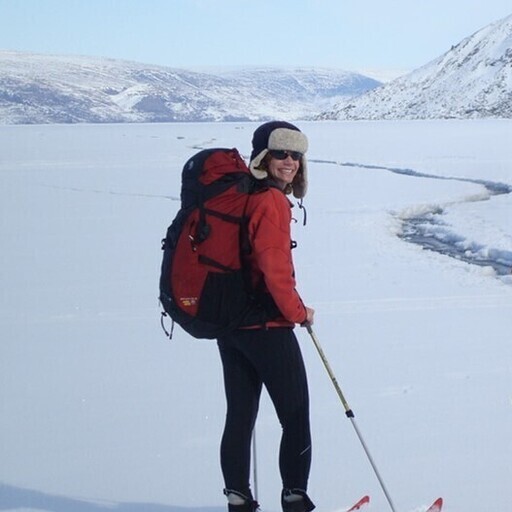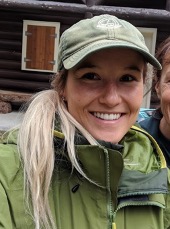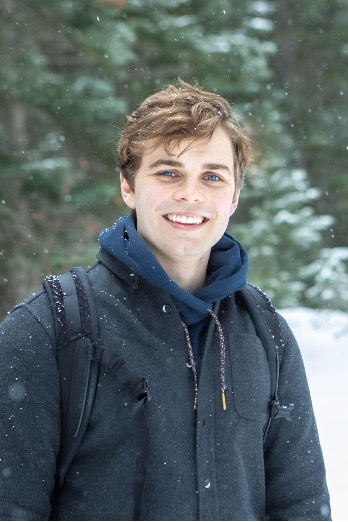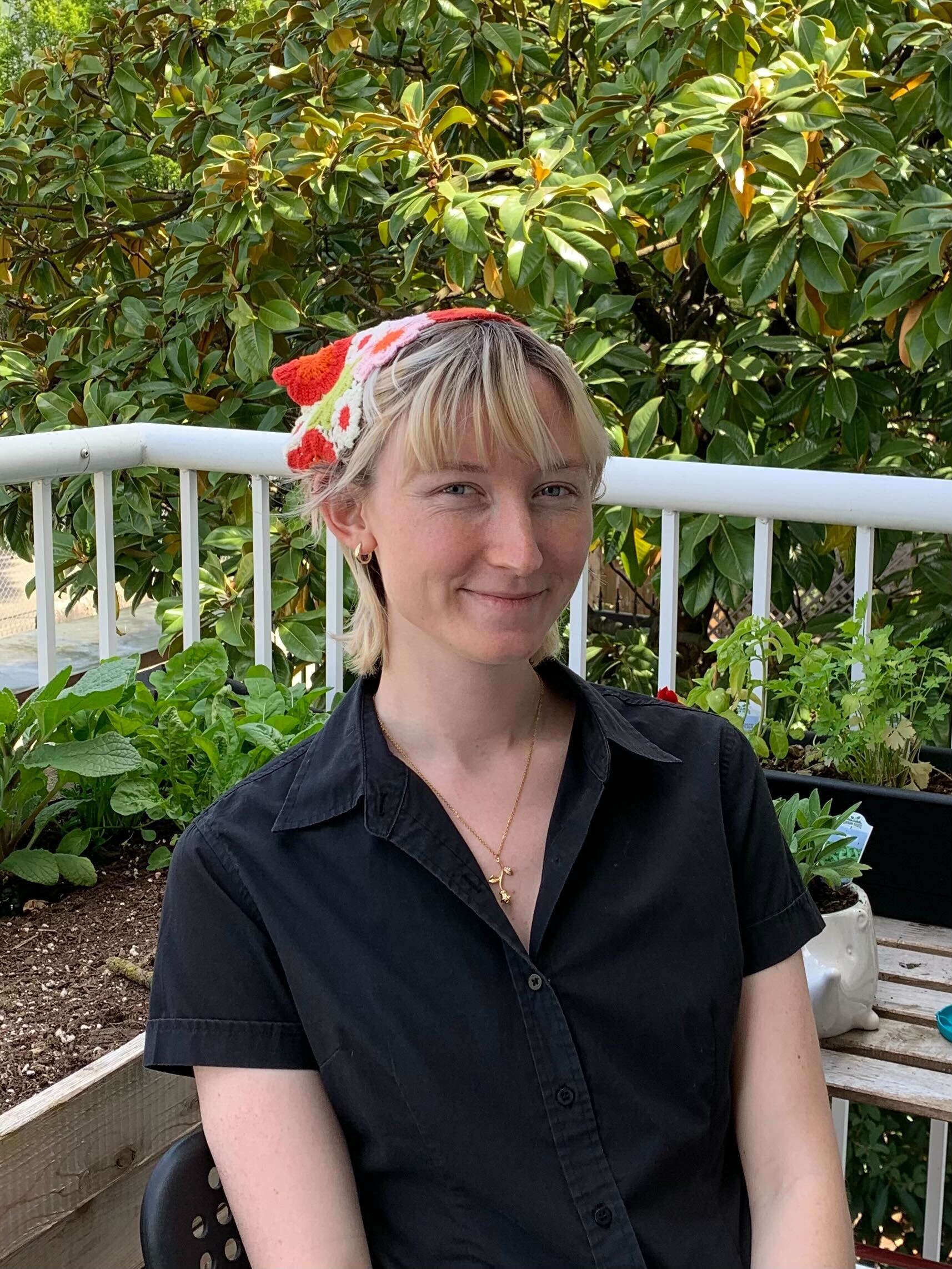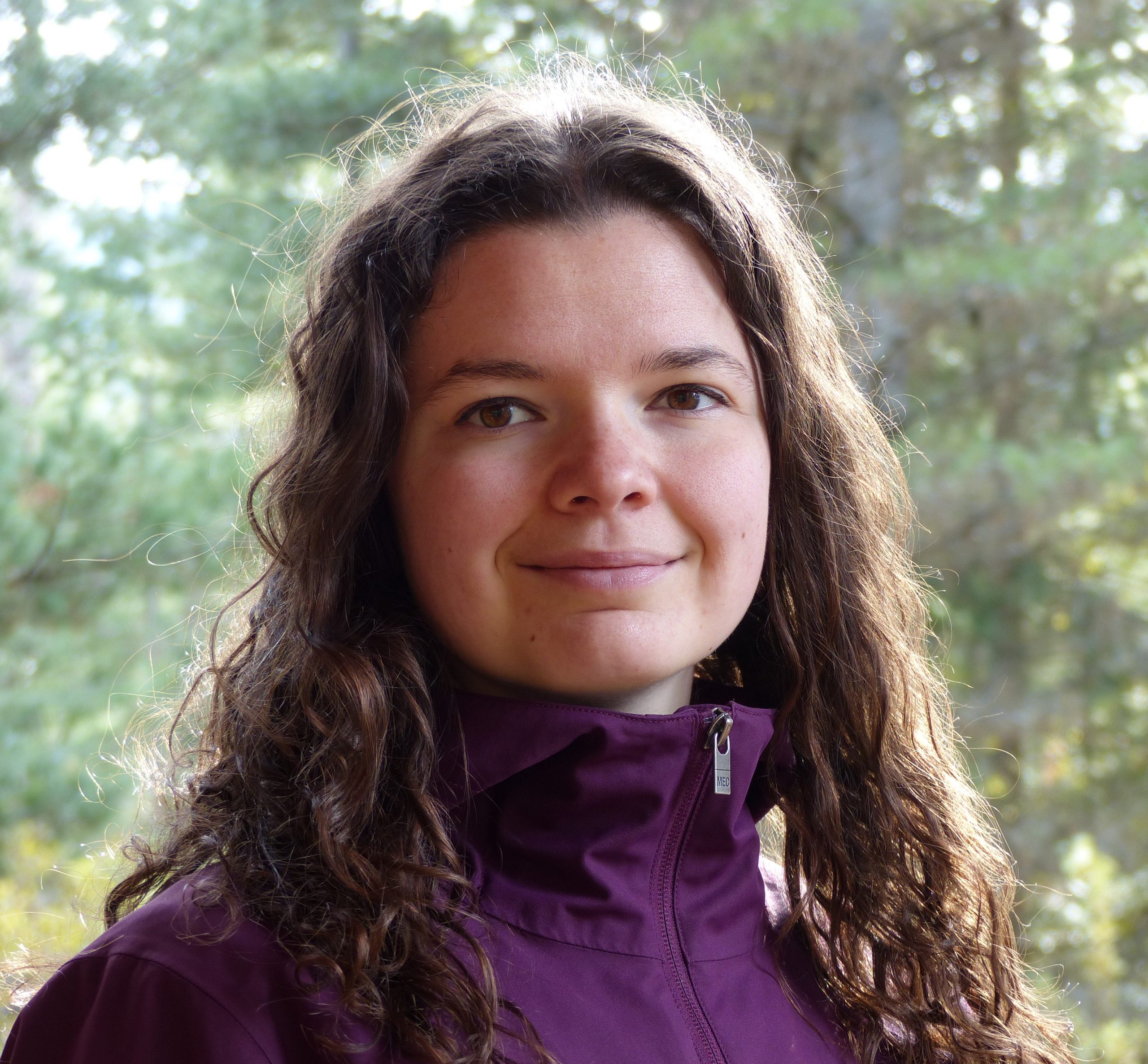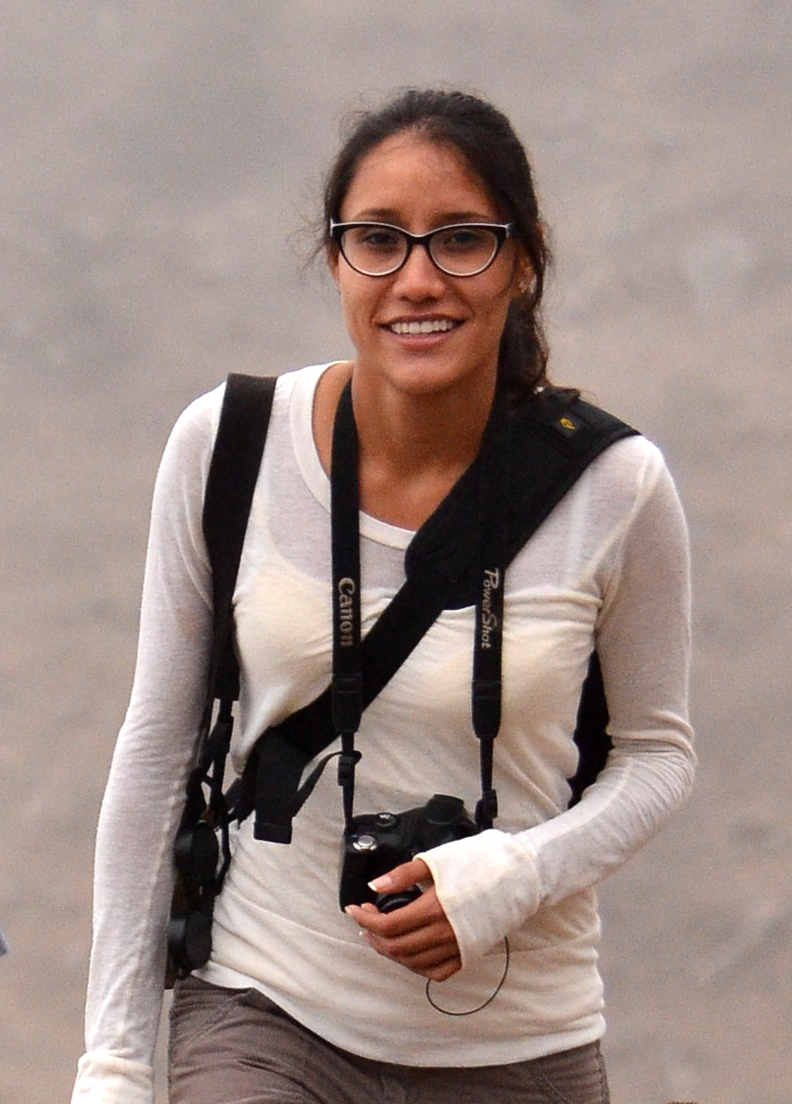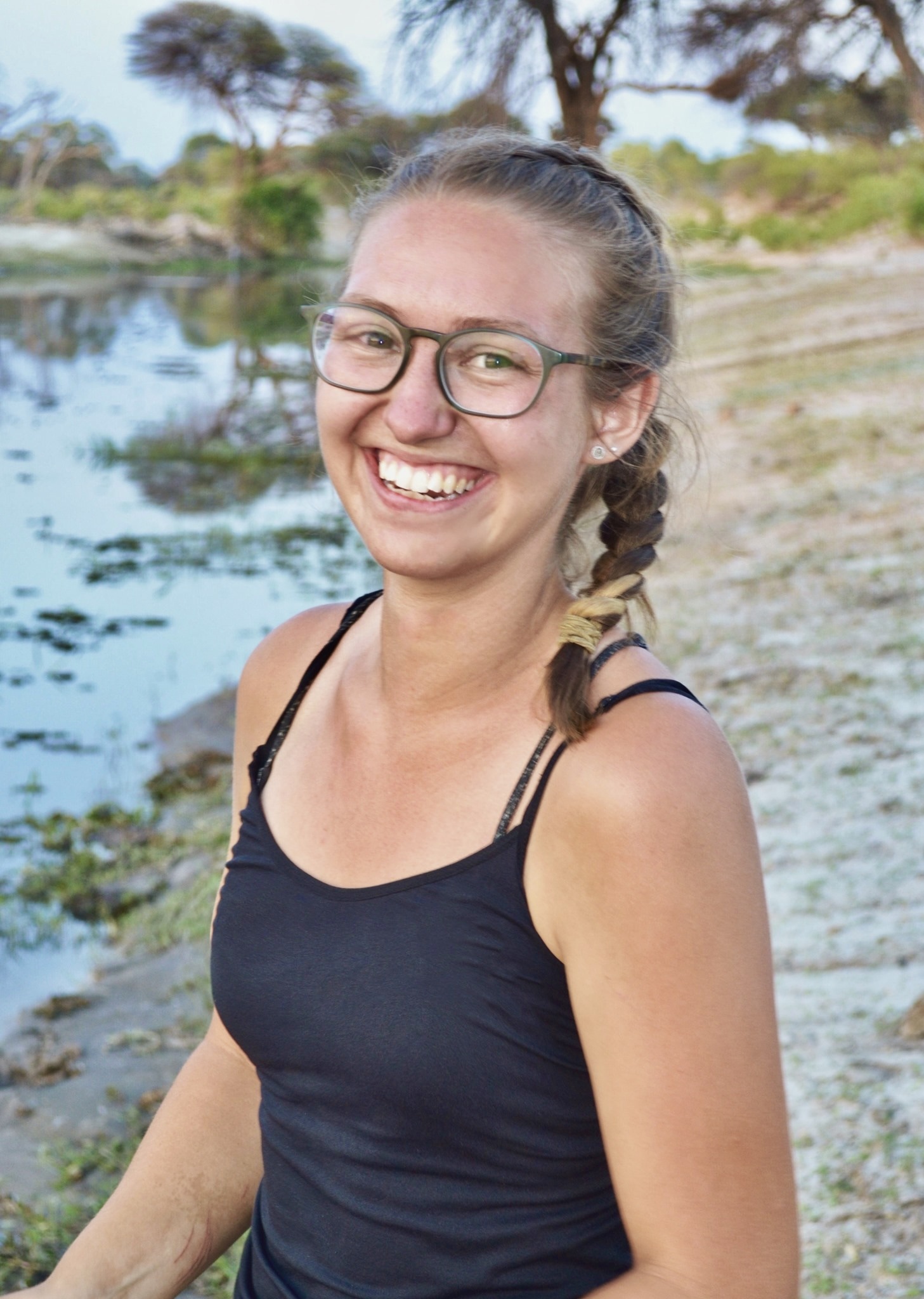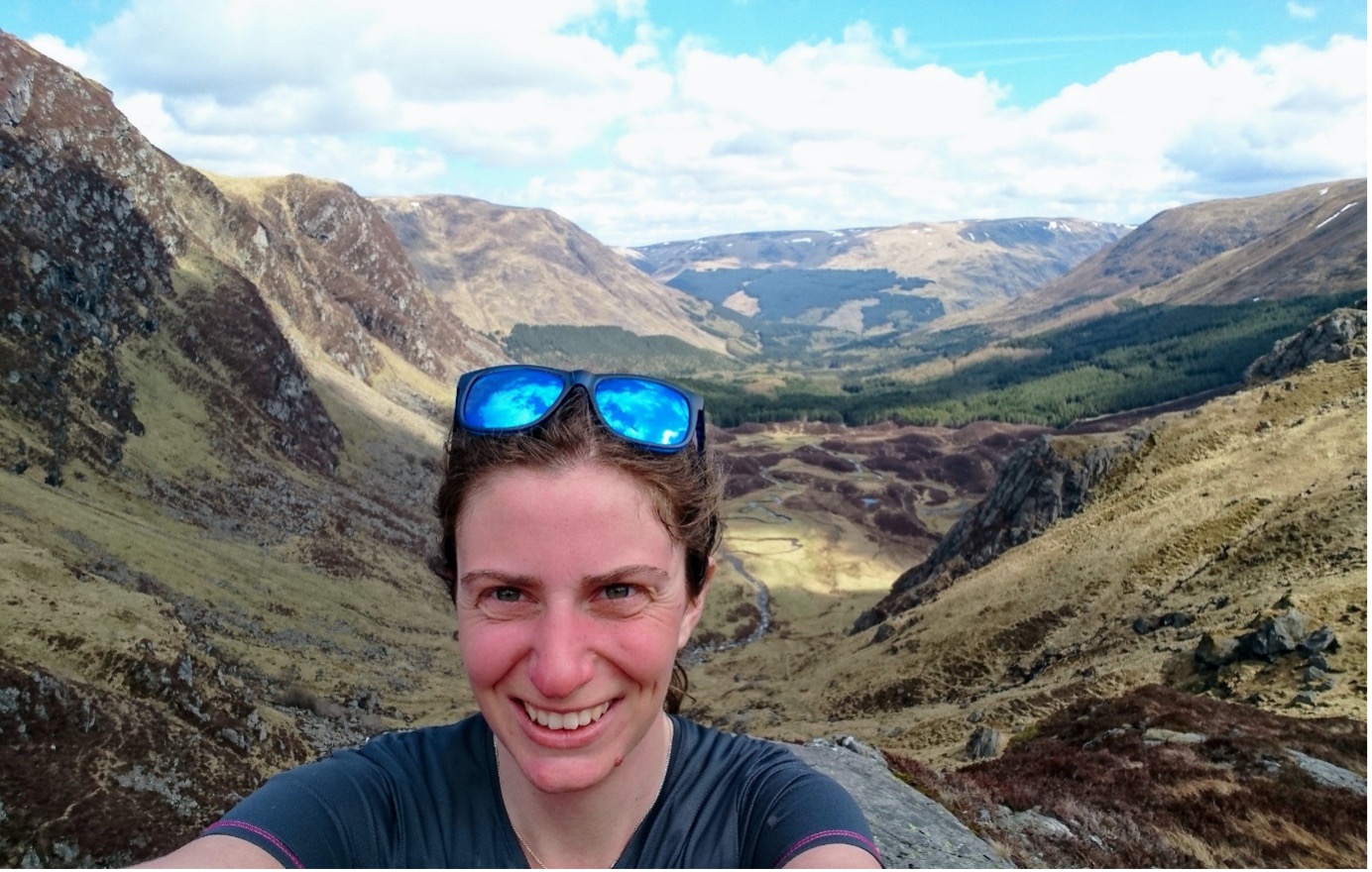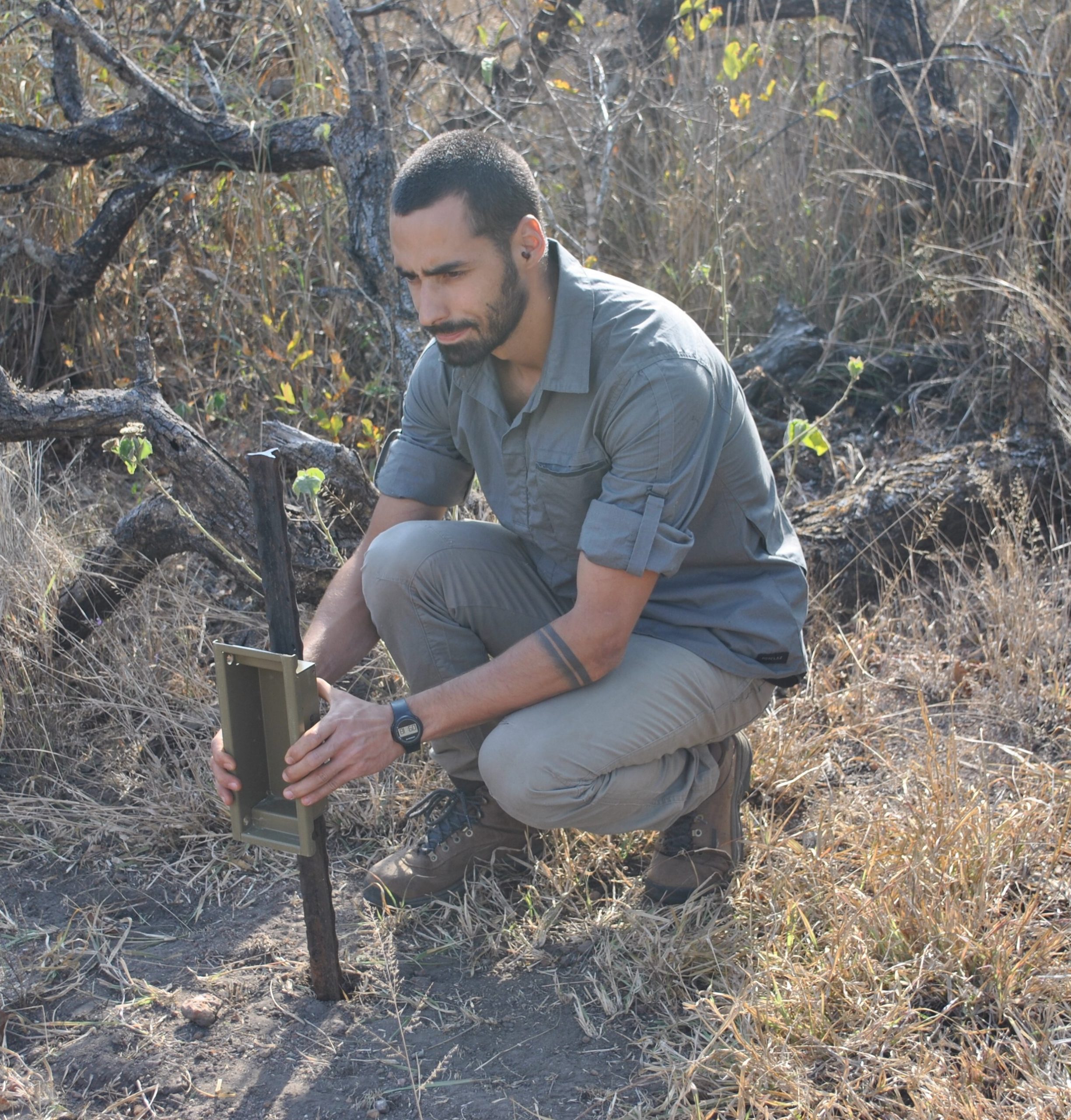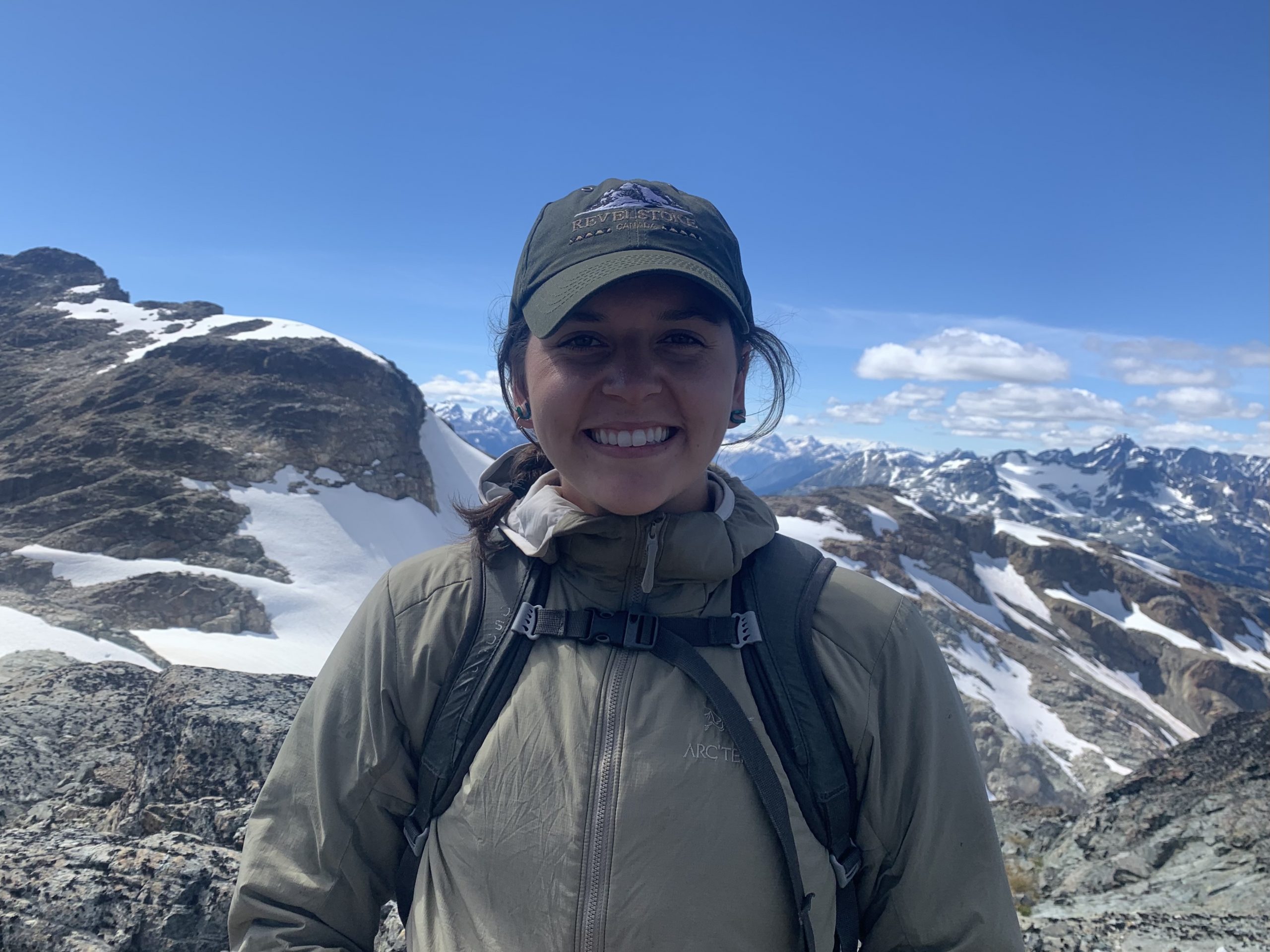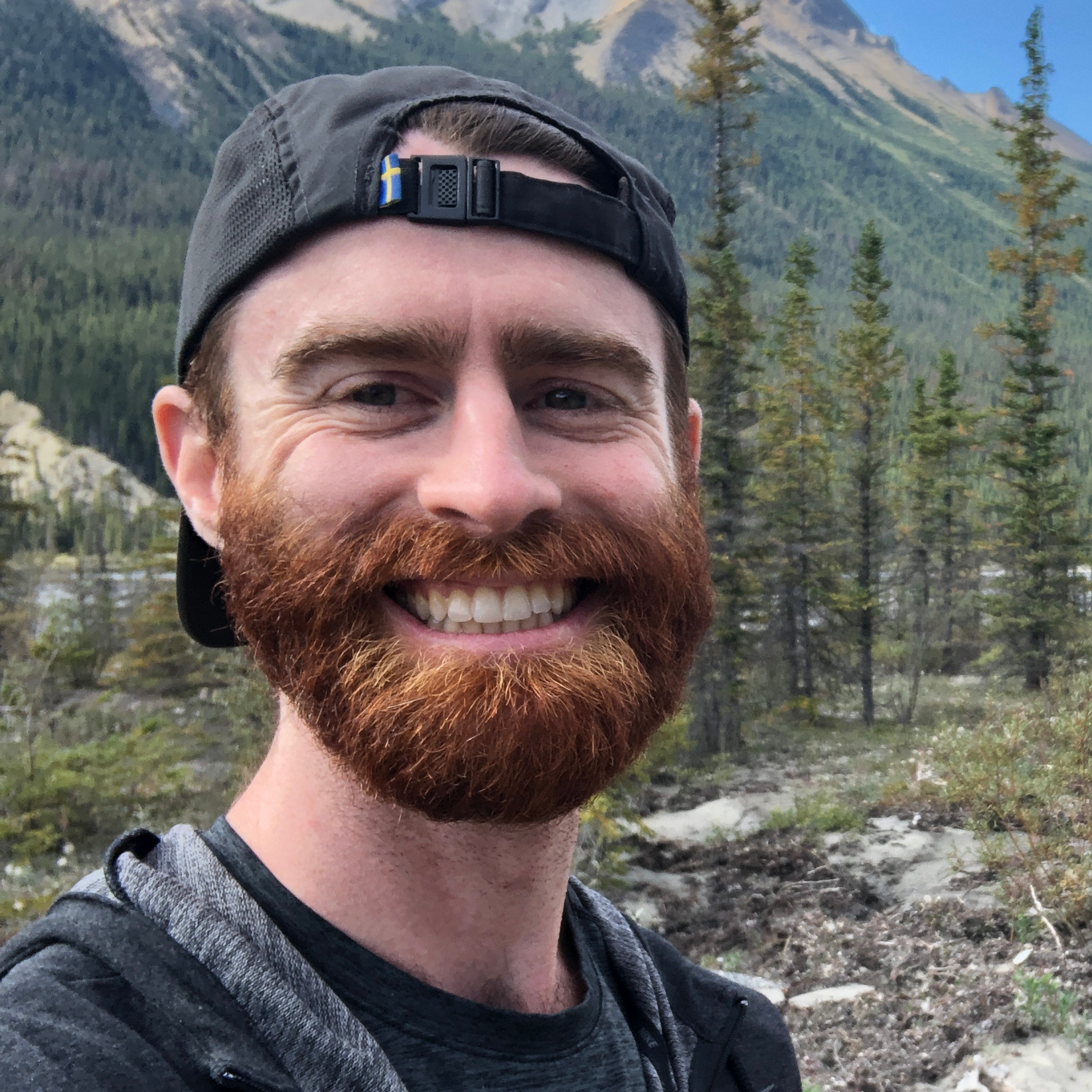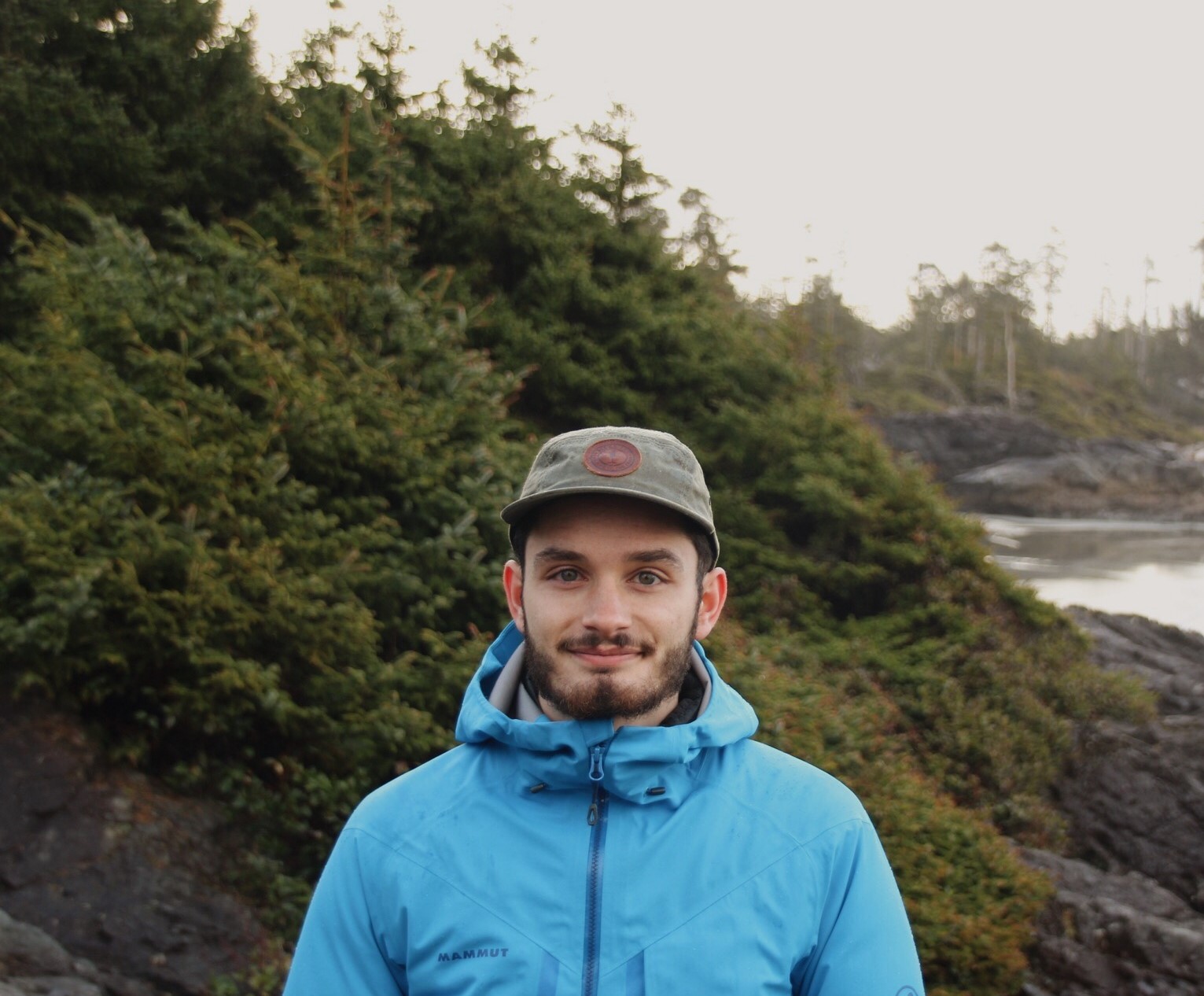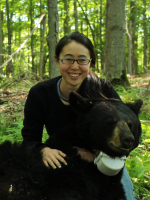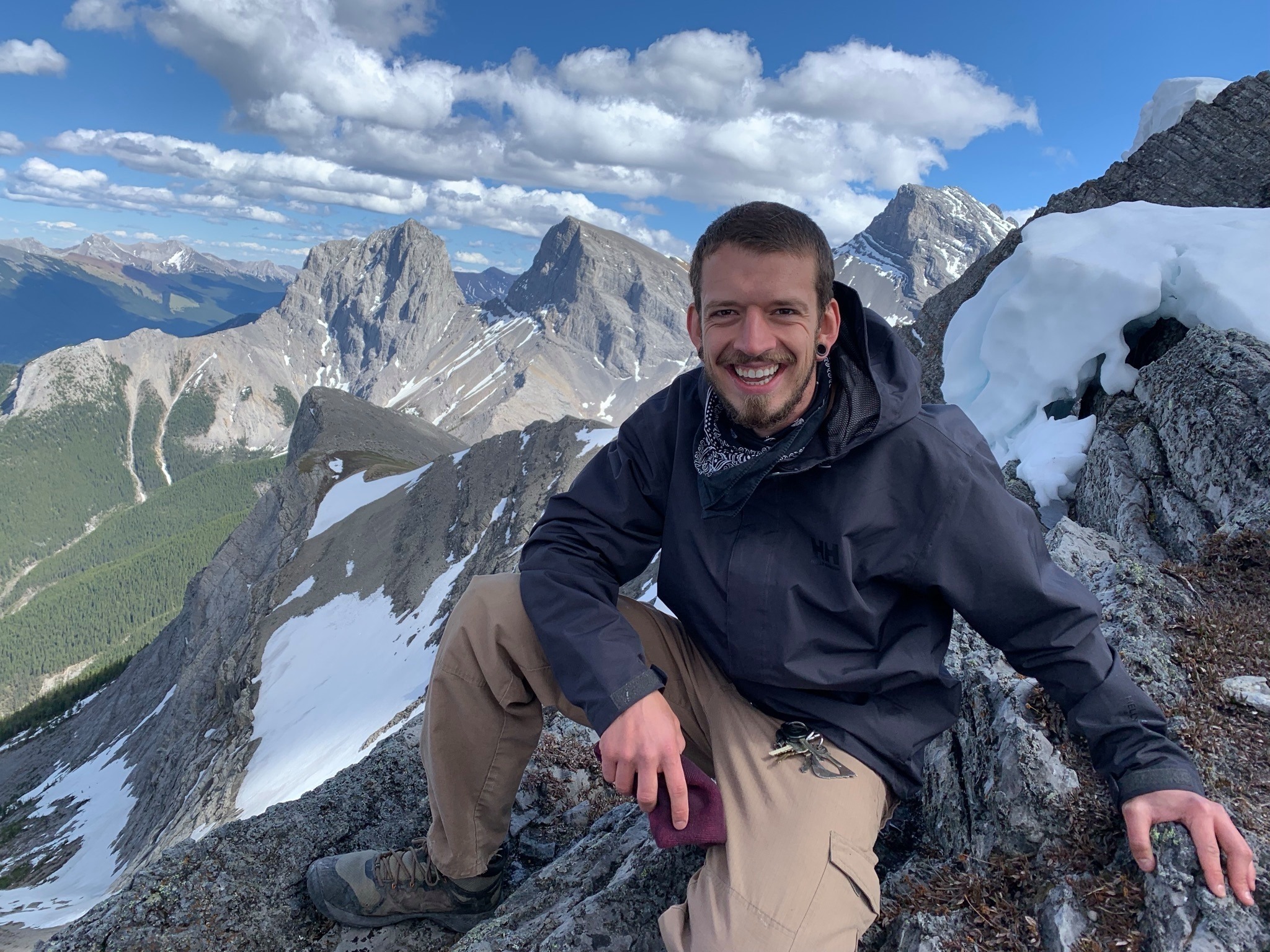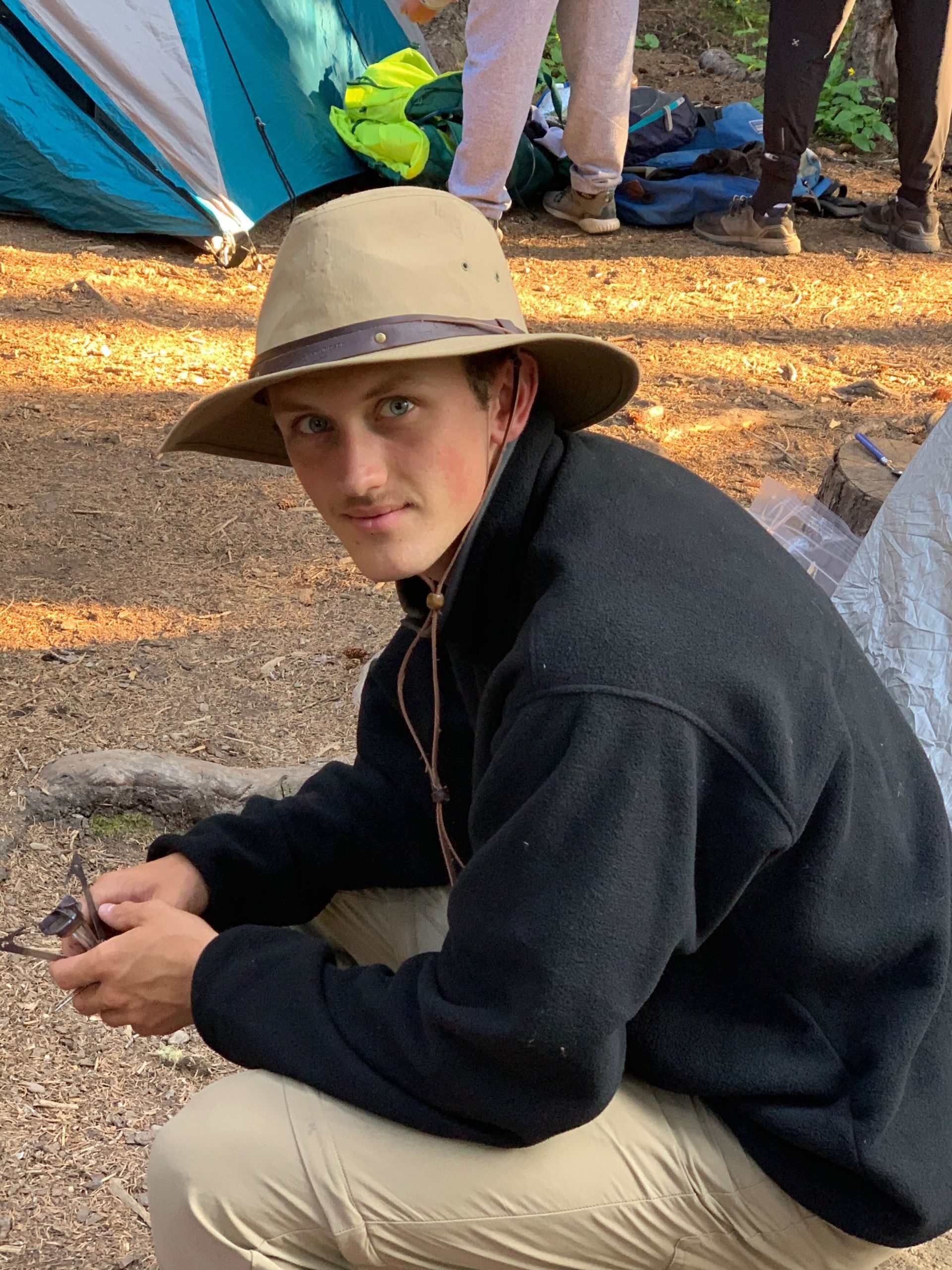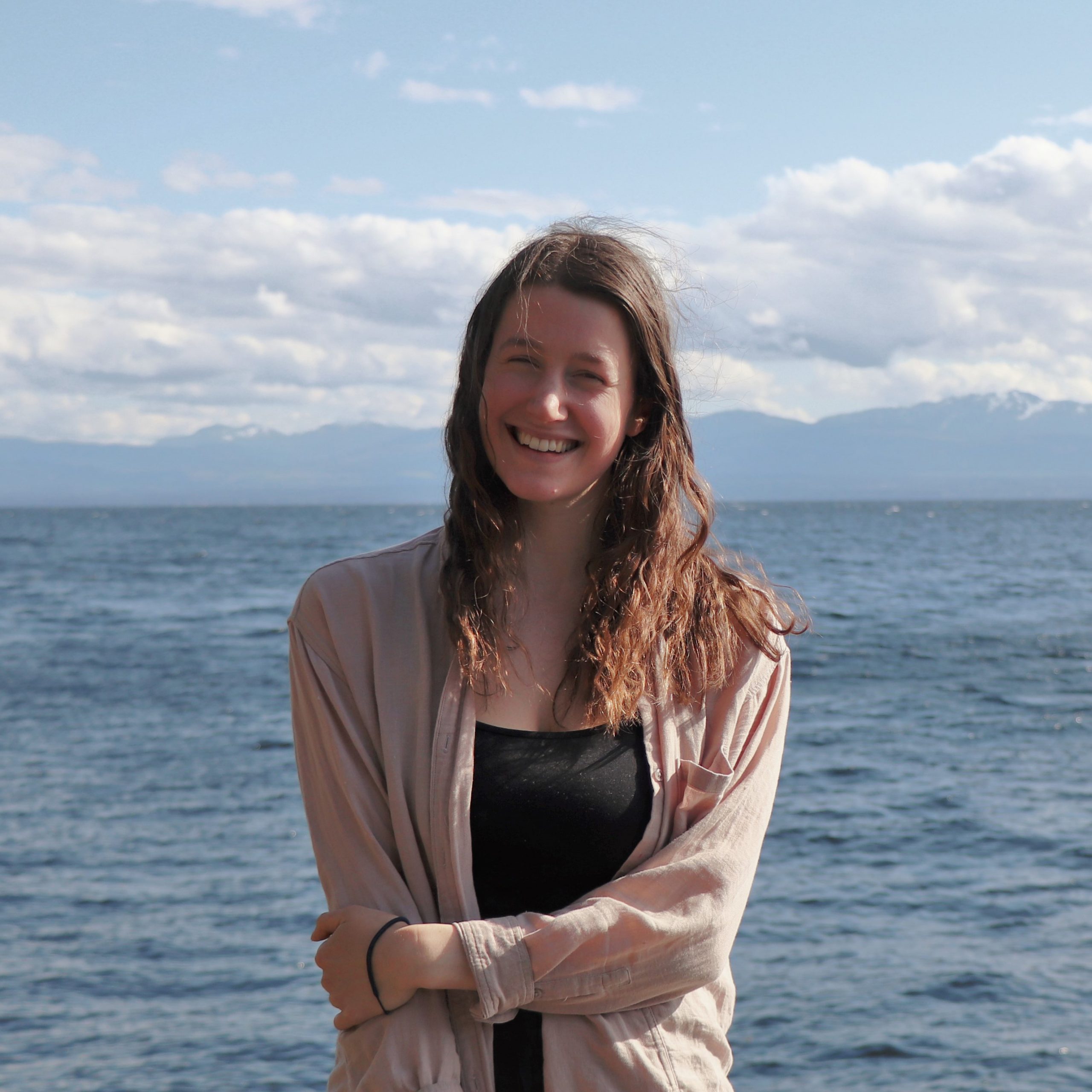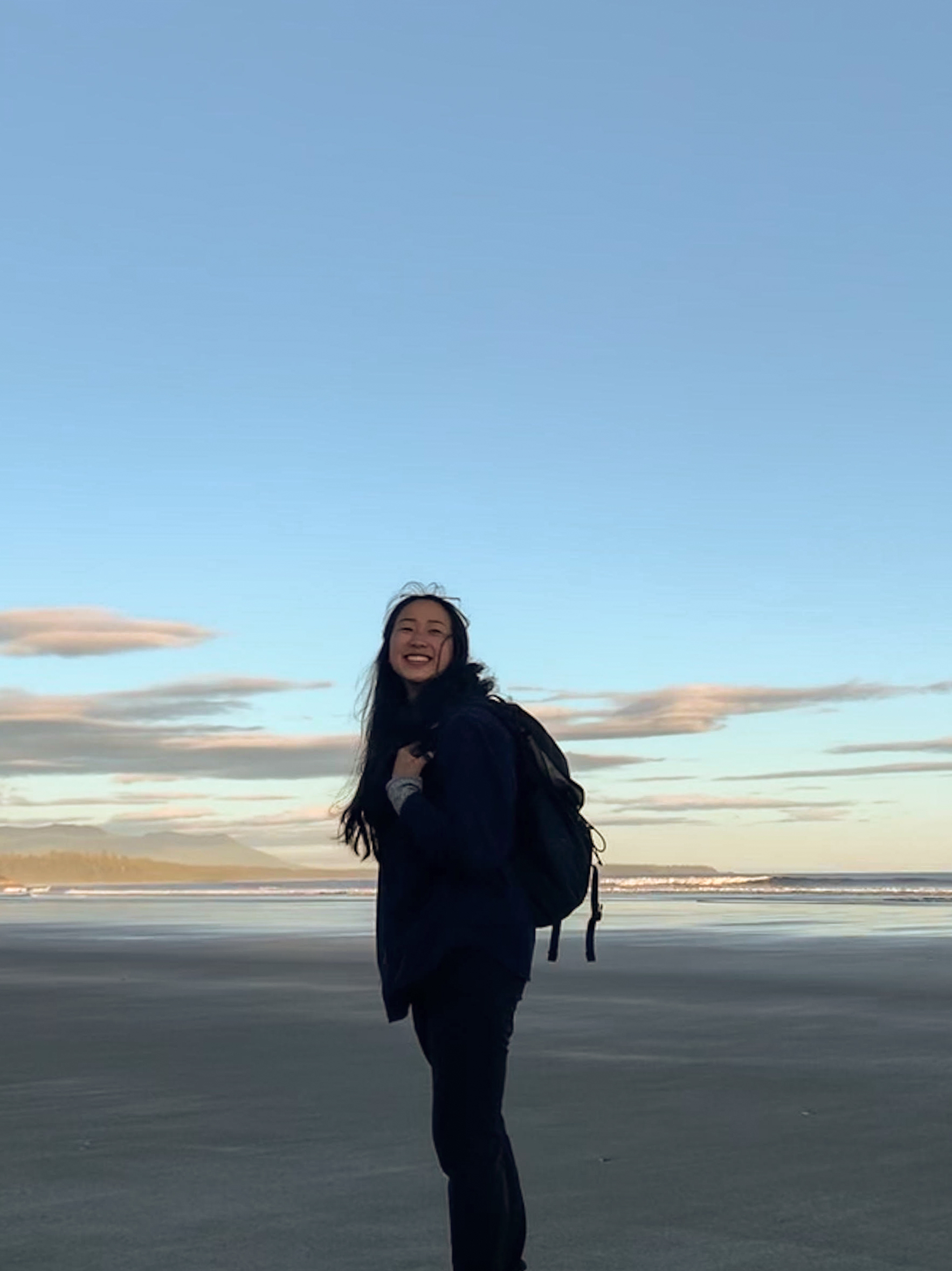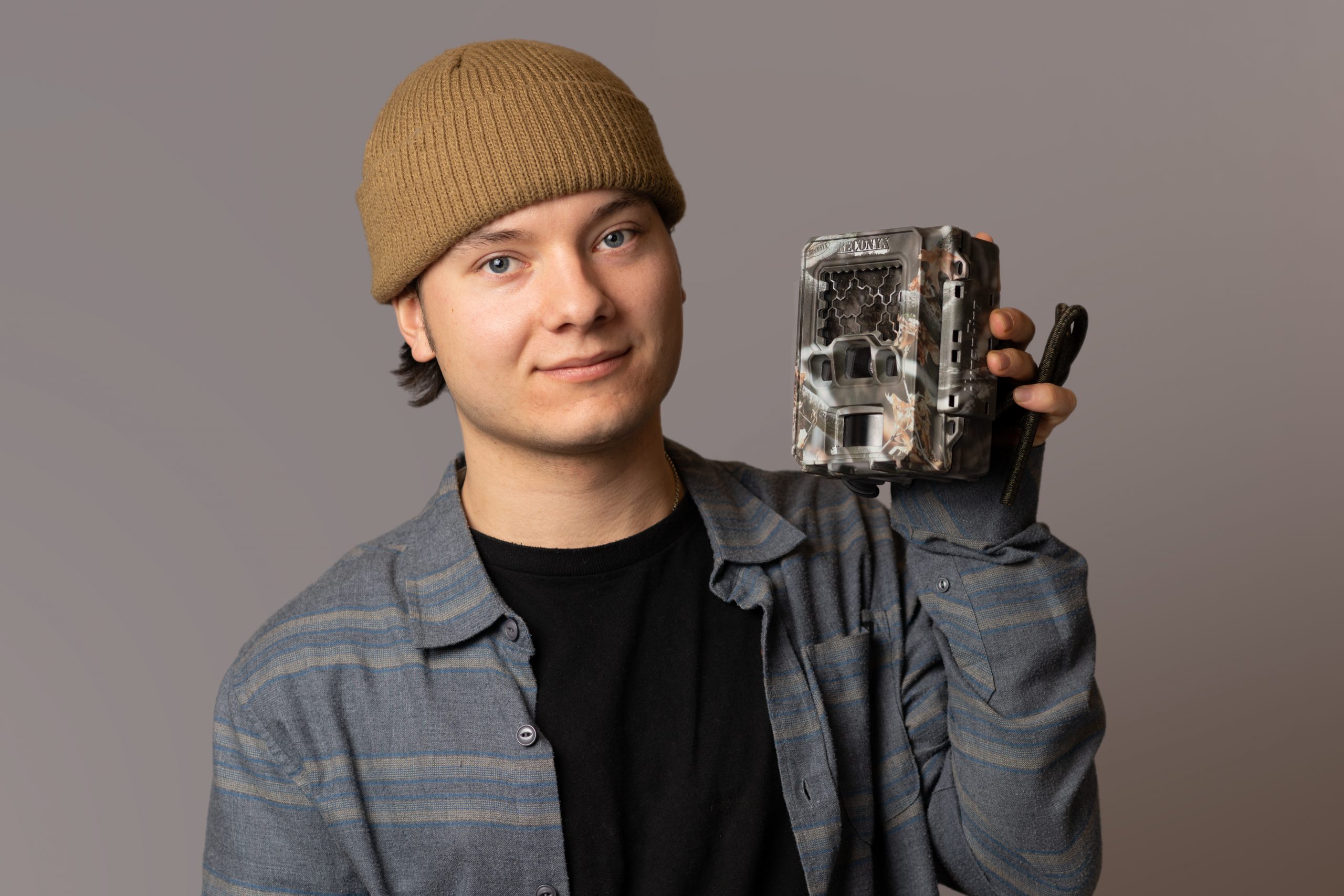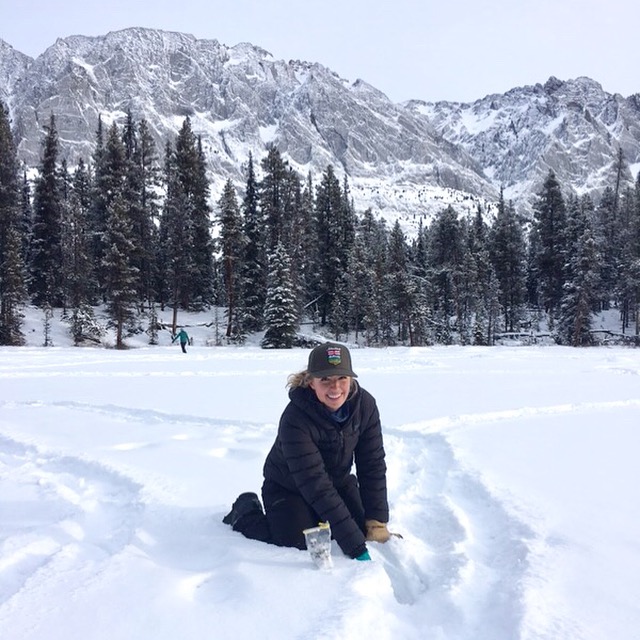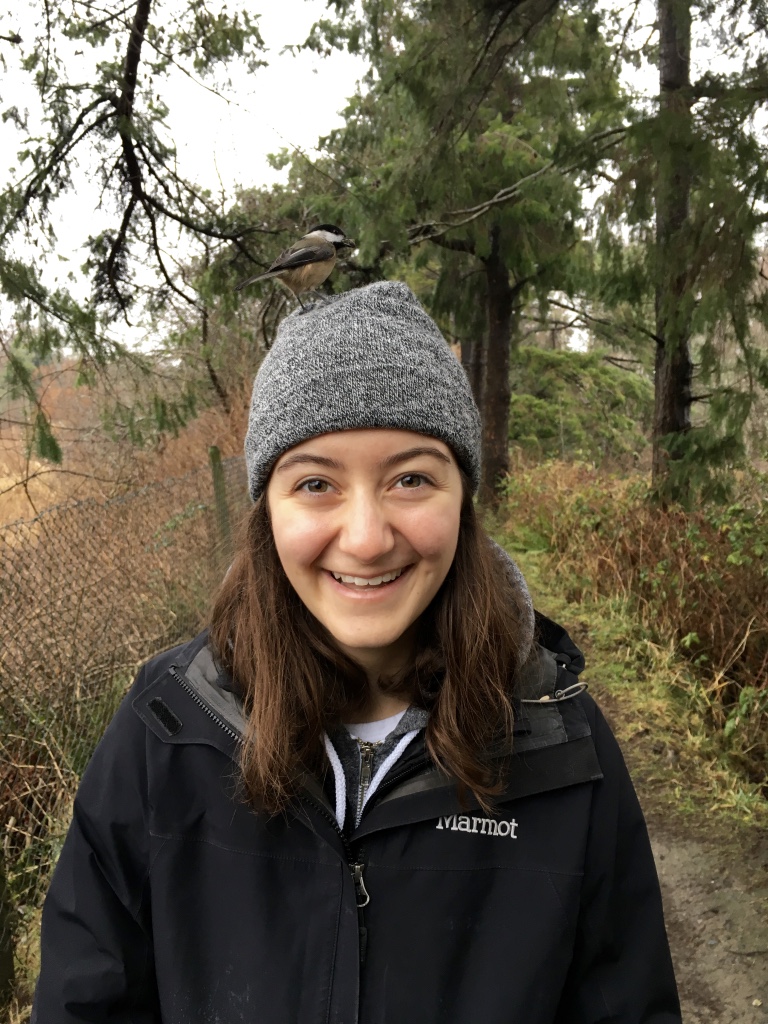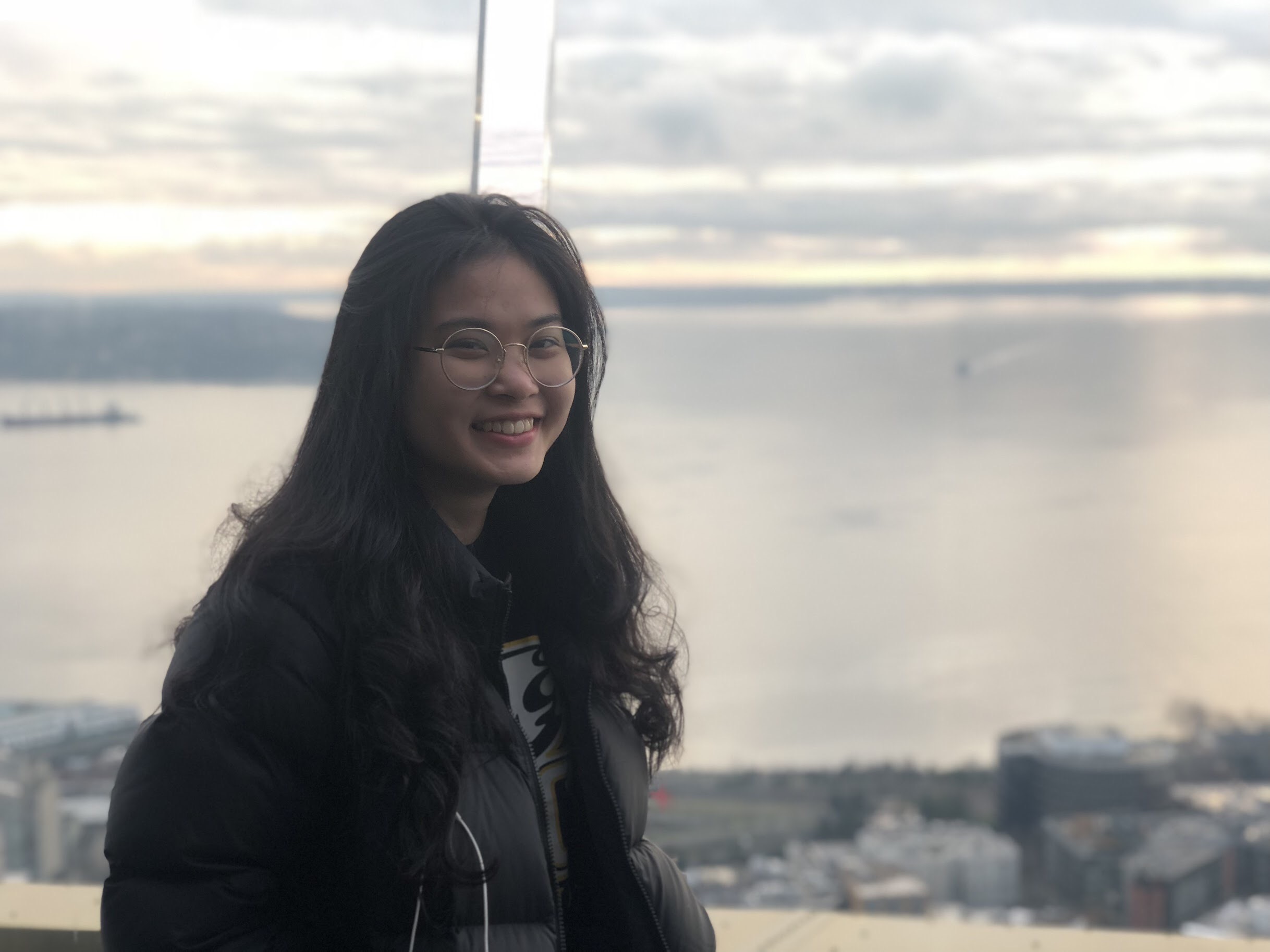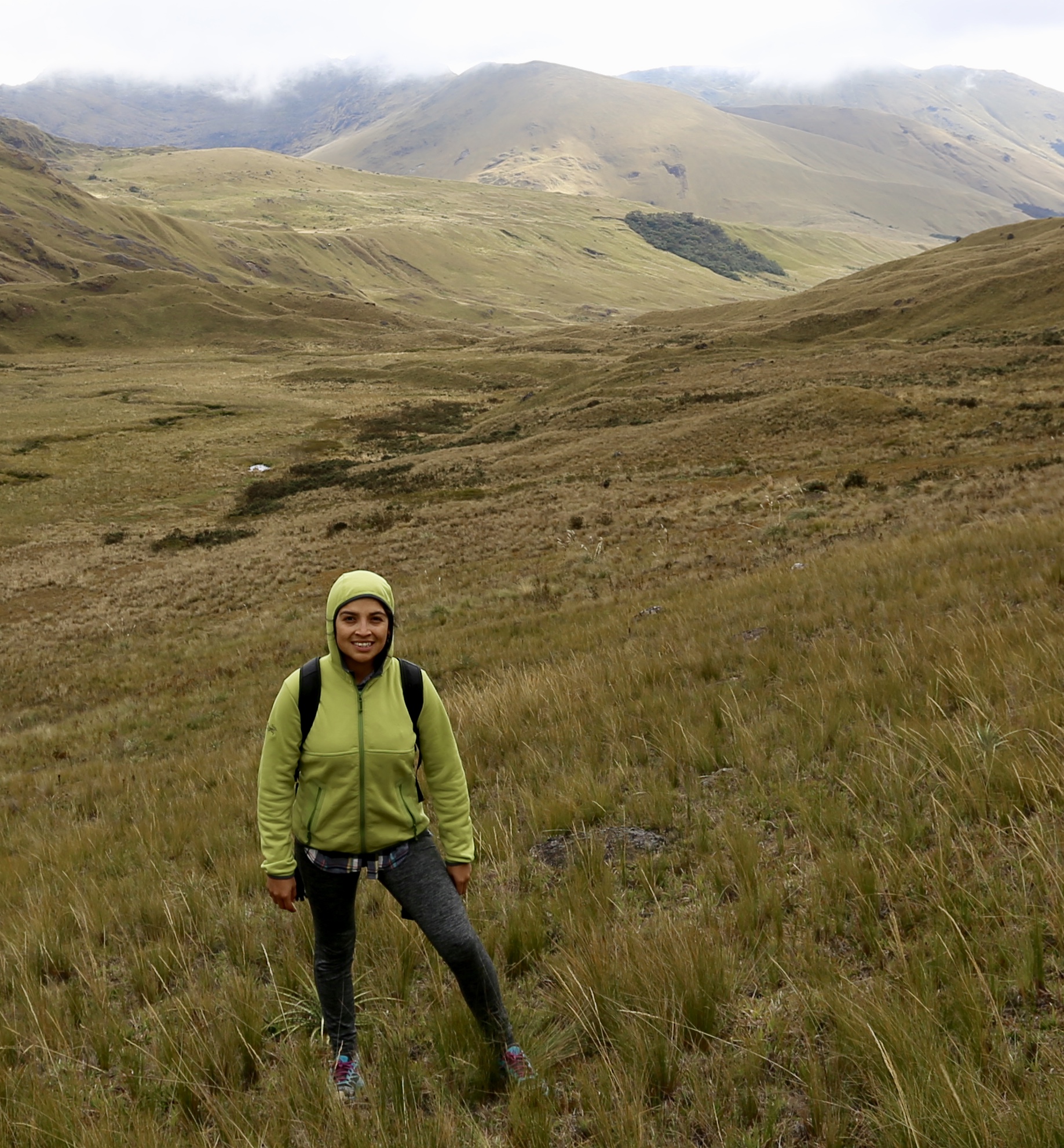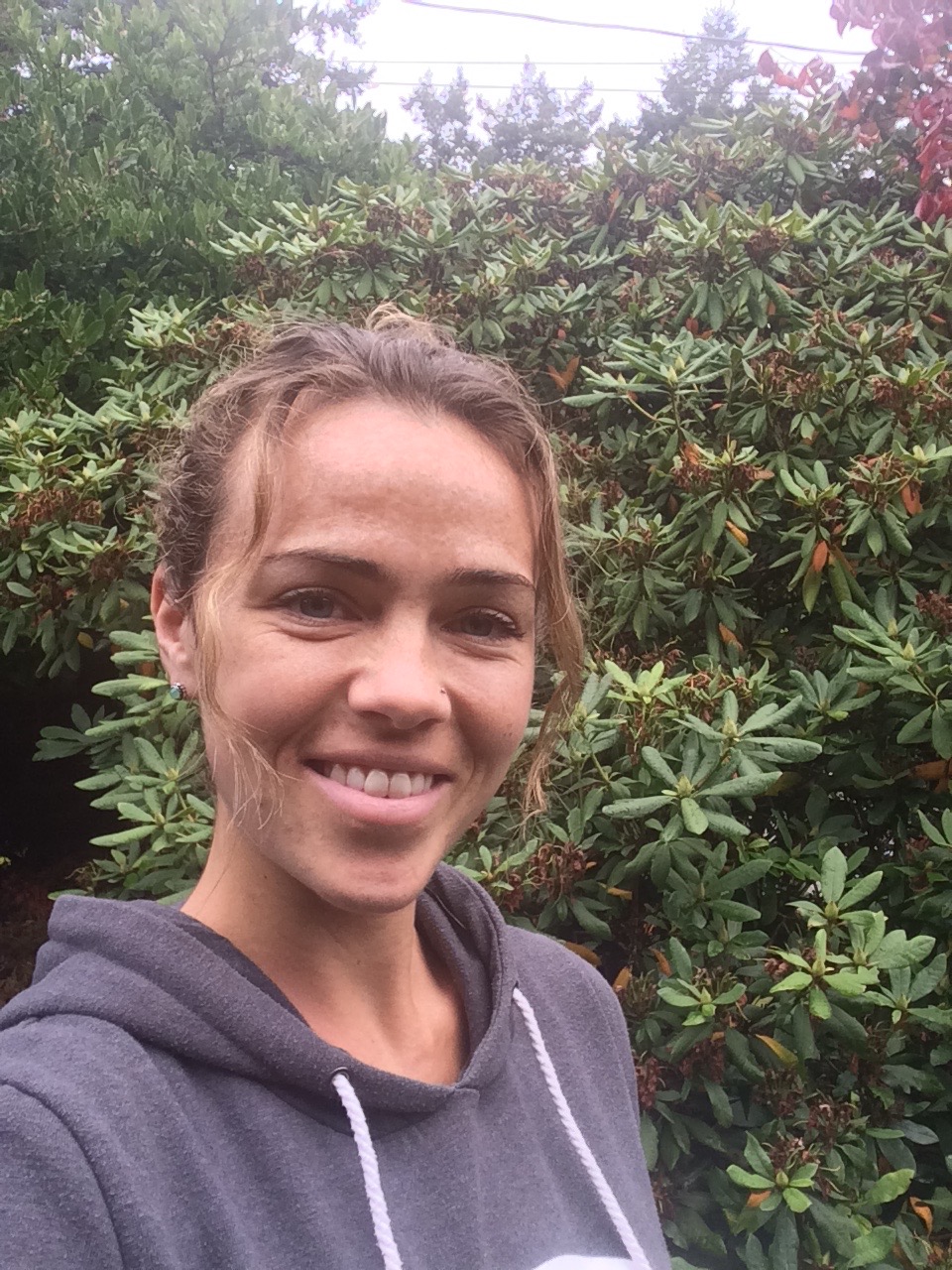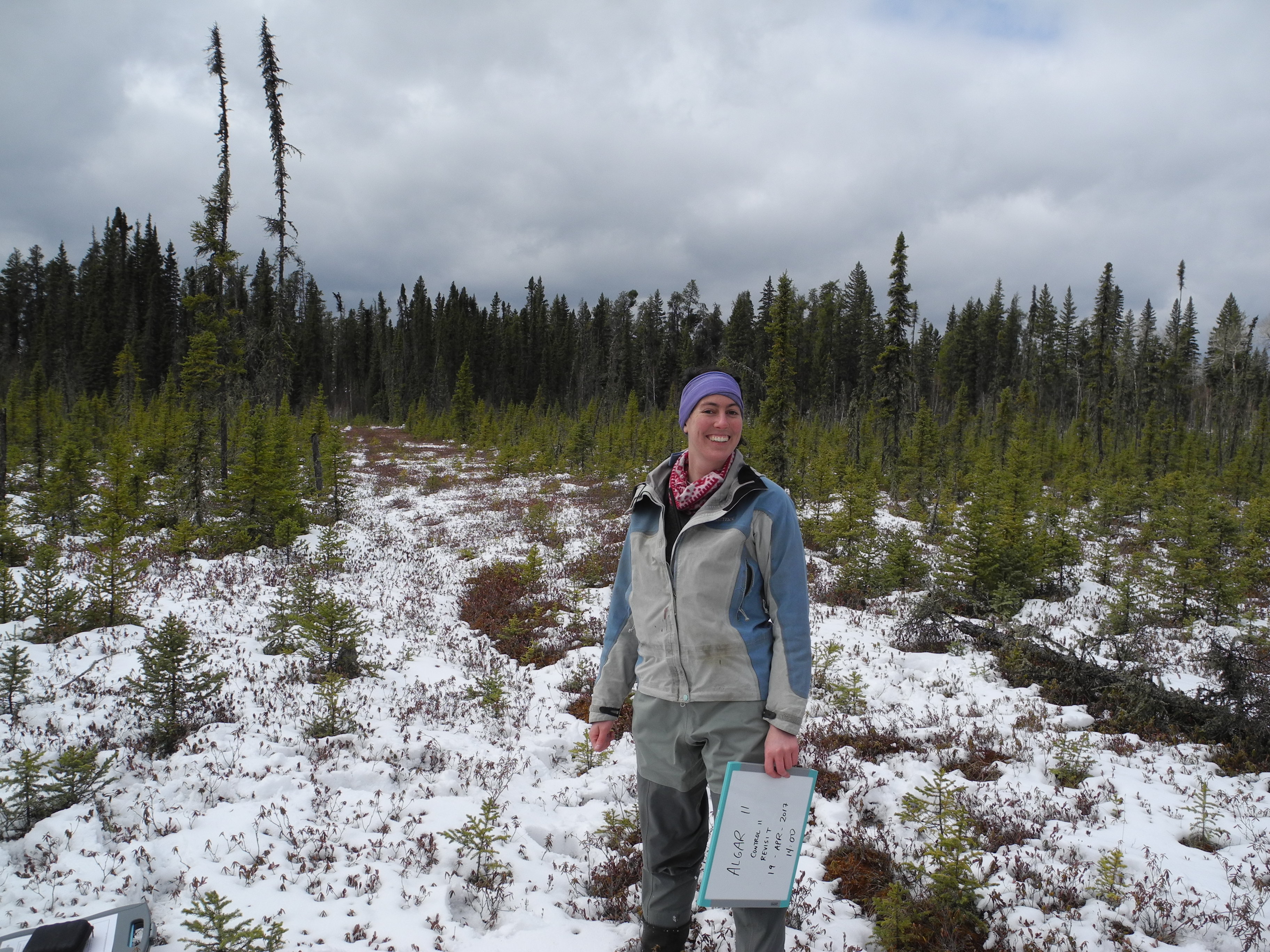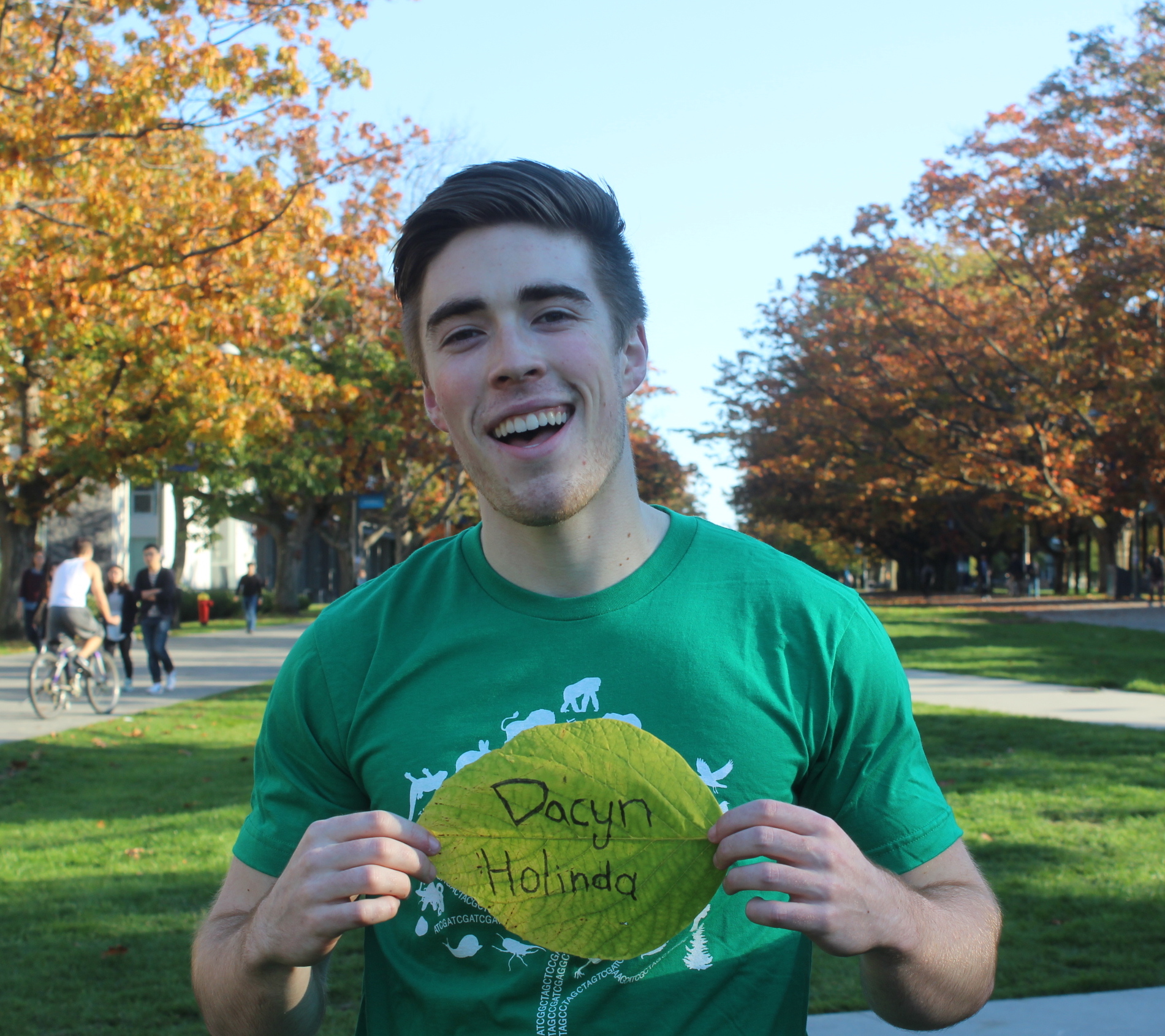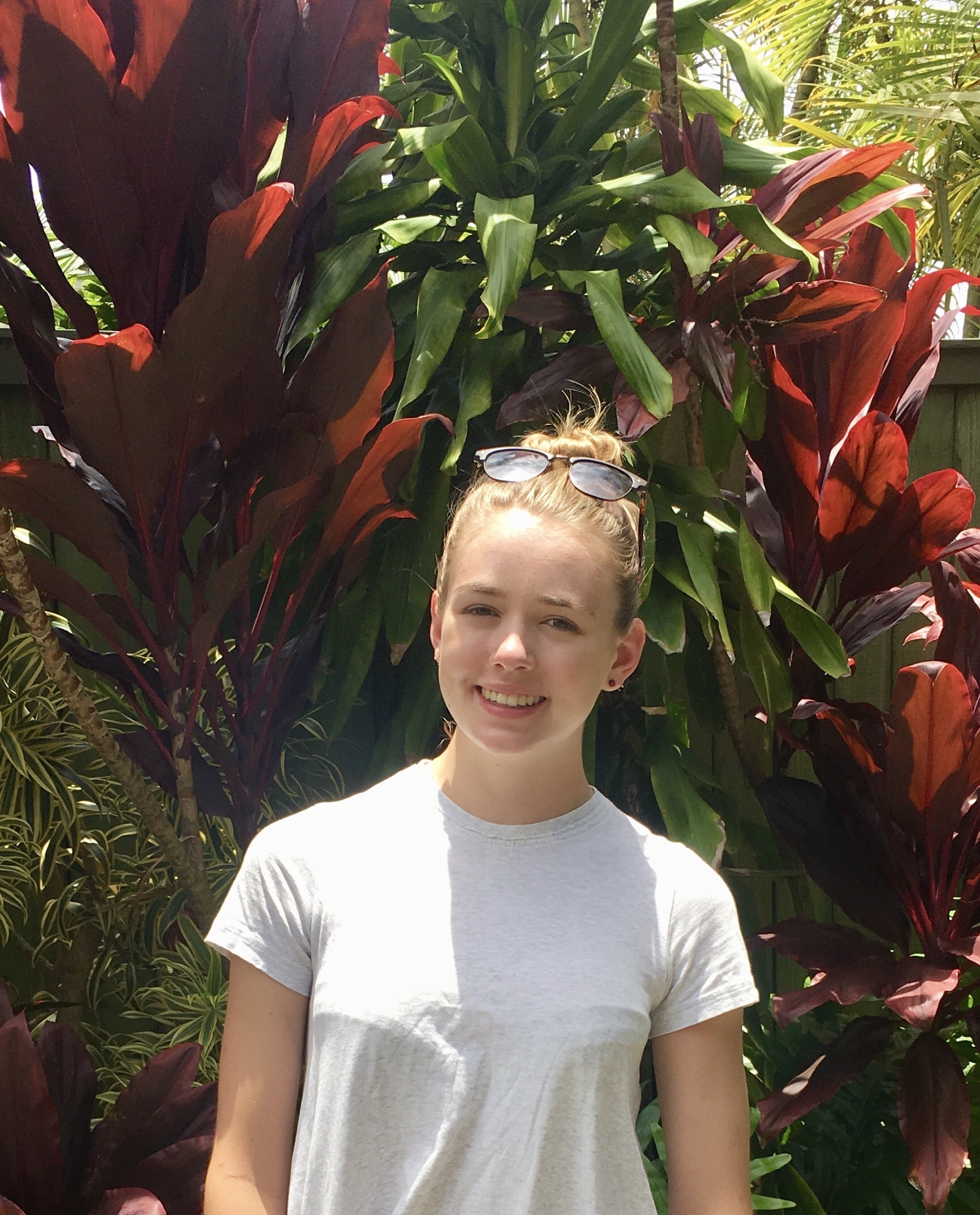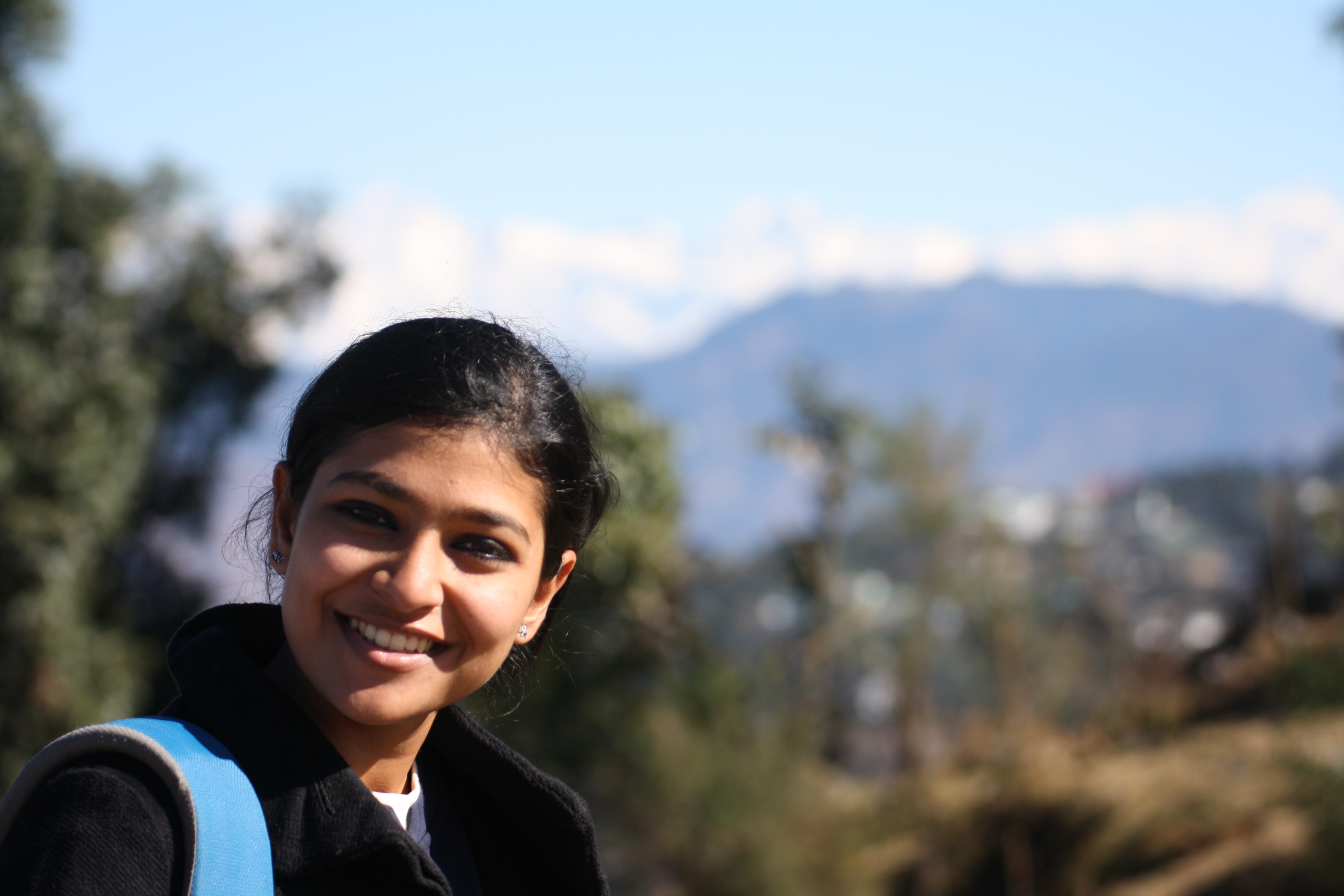Katie Tjaden-McClement [Masters]
Katie started her MSc in the WildCo Lab in September 2021, after previously completing her undergraduate honours thesis in the lab and working as a research technician on various projects in the lab. Her masters research uses camera traps to investigate interspecies interactions in the large mammal community of the Chilcotin Plateau in west-central BC.
She has evaluated disturbance-mediated apparent competition as a driver of population decline for the Itcha-Ilgachuz caribou herd, where forest harvesting and forest fires provide enhanced forage for moose and mule, allowing predator populations to increase, ultimately causing increased predation on the caribou. She also evaluated potential impacts of a large feral horse population in the area and whether they may be competing with and negatively effecting native ungulates, particularly moose.
Raunaq Nambiar [Lab Manager]
Raunaq began working at WildCo after completing his undergraduate degree in conservation at the Faculty of Forestry. His work as a staff member ranges from processing images, maintaining equipment, and project partner engagement and outreach. He helped co-ordinate WildCAM, a multi-institutional network of camera trapping and wildlife professionals, academics, and policy-makers that focusses on research capacity-building, science communications, and developing/reviewing best practices in the camera-trapping universe.
He is keenly interested in the science-policy interface, and in helping make the lab’s academic work more accessible to other user groups, from the general public to policy-makers and practitioners in government and local communities. Before WildCo, he worked on black bear conflict management project in Manning Park in collaboration with BC Parks, and has volunteered for various labs at UBC and with NGOs like the Stanley Park Ecology Society and the UBC Farm.
Laura Griffin [Post-doc]
Laura Griffin was a postdoctoral research fellow working with the WildCo Lab and with the Foothills Research Institute (fRI). She has a PhD in Wildlife Ecology from University College Dublin (Ireland). Her PhD research focused on unravelling the effects of recreational human-wildlife feeding interactions on targeted wildlife, using deer in urban parklands as her model species, as well as testing management actions aiming to reduce these impacts. Laura is interested in exploring and mitigating factors which impact natural behaviours in wildlife. She has previously worked on several projects studying the impacts of human activities on wildlife behaviour, physiology, and welfare in Ireland, the UK, Greece, and South Africa. She is worked on a collaborative project, designed by fRI’s Dr. Laura Finnegan, analysing large mammals’ responses to forest stands impacted both by Mountain Pine Beetle (MPB) and associated MPB management by foresters. The overall goal of this project is to use these findings to inform dynamic forestry management actions in the face of MPB spread and therefore reduce the associated impacts on wildlife.
Jacqui Sunderland-Groves [Post-doc]
Jacqui Sunderland-Groves joined the Department of Forest Resources Management in April 2018 as a Research Scientist. Holding an MPhil. in Conservation Biology from the University of Sussex, Jacqui has worked in West-Central Africa and Asia since 1995, specializing in great ape ecology and conservation related research, reintroduction and management of complex conservation programs. A significant part of Jacqui’s research has focused on the distribution, ecology and conservation of Cross River gorillas in Cameroon, where she established a long-term research and conservation project. More recently her work extended to Indonesia and the reintroduction of over 330 wild Bornean orangutans in Kalimantan. Her research interests focus on great ape conservation challenges and seeking lasting solutions to abate those.
Autumn Noel [Research Assistant 2024-2025]
Autumn, a second year undergraduate student studying biology, joined the WildCo Lab in September of 2024 as a research assistant. She is primarily helping process camera trap images for graduate students in the lab. Previously, Autumn has worked for Ontario Parks and assisted the Ontario Piping Plover Conservation Program. She completed field surveys, habitat assessments, processed camera trap images and helped develop recommendations for camera protocols. Autumn loves nature, especially wildlife, and wants to help preserve Canada’s biodiversity.
Ana Beatriz Pereira [Research Assistant 2024-2025]
Ana, entering her fifth year in Geography: Environment & Sustainability, began her role as a Research Assistant at WildCo in May 2024. Her responsibilities include field work and processing data from camera trapping equipment across field sites in South Chilcotin Mountains, Itcha Ilgachuz, and Mt Robson Provincial Park. Additionally, she collaborates with PhD student Tazarve Gharajehdaghipoor in analyzing coyote scat to investigate the implications of wolf reduction on caribou conservation. Ana is interested in learning more about the impacts of human disturbance and policy on wildlife populations, and the additional challenges posed by climate change, including the escalating threat of wildfires.
Deborah Jenkins [Post-doc 2022]
Deborah (Debbie) Jenkins is a postdoctoral research fellow in the WildCo Lab since October 2022; she earned her PhD at Trent University, ON, Canada, where she studied the response of Arctic caribou and muskoxen to a changing environment. Debbie is passionate about ecology and the conservation of biodiversity. She has a keen interest in species distributions, patterns of genetic diversity and population structure, and the ecological and functional connectivity of species – all to inform the conservation of wildlife and their habitat. Debbie’s WildCo research uses circuit theory, GIS, camera trap and citizen science observations to evaluate the influence of natural and anthropogenic features on carnivore connectivity in southwestern British Columbia. The aim is to model and map fine scale, multispecies, carnivore connectivity for conservation.
Christopher Stinson [Masters]
Within the last few years there has been a shift in the species of marten found in North America. Martes caurina, the Pacific Marten, has been re-elevated to species level. With Martes americana, the American Marten, there are now two species of marten on the continent. I want to find out what is going on where they meet in British Columbia. I am a MSc student that joined the WildCO Lab in September 2019 and also Curatorial Assistant of Mammals, Reptiles and Amphibians at the Beaty Biodiversity Museum. I am using museum specimens and recently obtained trapped animals to determine the differences between the species. Through a combination of classical linear measurements and 3D photogrammetry techniques, I am analyzing the cranio-morphological differences and using genetics to dig into what is happening where these two small carnivores meet in BC.
Madeleine Wrazej [Masters 2021-2024]
Madeleine started her MSc with WildCo in September 2021. Her research focuses on the use of non-invasive stress hormone analysis and camera traps to examine human impact on mountain goats in Banff and Yoho National Parks. She is working in collaboration with Parks Canada with the aim of informing mountain goat conservation and management decisions within the Mountain National Parks. Madeleine graduated from the University of Victoria in 2019 with a Bachelor of Science. Before joining WildCo, she worked for Parks Canada conducting ecological monitoring. This included amphibian occupancy monitoring, forest and alpine bird acoustic monitoring, maintaining a large wildlife camera trap network, and reporting on the ecological integrity of the parks.
Mathew Appelbaum [Research Assistant 2024]
Mathew Appelbaum joined the WildCo lab in September of 2023 as a fourth-year undergraduate student in the Natural Resources Conservation program. He is primarily focused on camera tagging for MSc students Ali Dimitriou and Madeleine Wrazej. Before joining WildCo, Mathew worked as an undergraduate research assistant in John Richardson’s lab and as a summer student for a community forest in British Columbia’s southern interior. Mathew is passionate about wildlife conservation and is determined to pursue a career in this field.
Jade Aitken [Research Assistant 2023]
Jade joined WildCo in September 2023 as a fourth year student in Natural Resources Conservation. As an undergraduate research assistant, she’s assisting PhD candidate Tazarve Gharajehdaghipoor and MSc student Katie Tjaden-McClement with the processing of camera trap data collected from the Chilcotin Plateau and Itcha Ilgachuz Provincial Park regions. With a previous business degree from Memorial University of Newfoundland, she hopes to use her unique combination of education to mitigate the effects of anthropogenic disturbances and habitat degradation on wildlife populations.
Liam Brennan [Research Assistant 2023]
In April 2023, Liam completed his BSc in environmental science at UBC. During his undergrad, he worked for the BC government and pursued a research project which examined the distribution and design of wildlife overpasses around the globe. He is interested in the restoration of ecological connectivity in disturbed landscapes. With Wildco, Liam will assist with field work and image processing for the Chilcotin Plateau and Itcha Ilgachuz Provincial Park Project. As a nature photographer, he is also passionate about using images to advance ecological solutions.
Brooke Carlisle [Research Assistant 2023]
Brooke joined the WildCo Lab as a research assistant for the summer of 2023. As a fourth year Forestry student, she is seeking to finish her BSc in Natural Resources Conservation this coming year. She is working to identify wildlife in camera trap images across the many ongoing research projects in the lab, as well as to set, check, and retrieve cameras in the field. Before joining WildCo, Brooke worked as an assistant to the UBC Farm Biodiversity Monitoring Project in Matthew Mitchell’s lab, catching bumblebees and IDing the farm’s wildlife via camera traps. Brooke is excited to visit WildCo’s field sites in Malcolm Knapp Research Forest, the South Chilcotin range, and Mount Robson this summer!
Laura Stewart [Masters 2021-2023]
Laura joined WildCo in January 2021. She will be working with local and government partners to help create a long-term wildlife monitoring protocol on on Ts’udé Nilįné Tuyeta Indigenous protected area near Fort Good Hope, Northwest Territories. The project will integrate mammal monitoring using camera traps and songbird monitoring using autonomous recording units (ARUs). Laura will be investigating what monitoring scheme is best for camera traps and ARUs to work together, and how small-scale monitoring can fit into larger monitoring programs that operate across the continent.
Cheng Chen [PhD 2017-2023]
Biodiversity conservation can no longer focus only on preserving and restoring ecosystems of the past. Because humans are now a major geological and environmental force as important as natural forces of the Earth, we can no longer treat natural systems as separate from human systems. My current research interest is to understand how human disturbance and conservation implements would affect large mammal population and community dynamics, including the ecology and evolution of species interactions. I received my M.Sc. in wildlife conservation from University of British Columbia (thesis: Factors affecting the efficacy of biodiversity conservation in tropical protected areas: a case study in Xishuangbanna, southwestern China) and a B.Sc. from Nanjing Agricultural University, China.
Cindy Hurtado [PhD 2017-2023]
Cindy joined the lab as a PhD student in September 2017. Her research interests are in the areas of species distribution, landscape ecology, and mammal conservation. Cindy has worked on several projects in Peru that include small and large mammal monitoring with trapping techniques as well as non-invasive methods (camera trapping, scat collection, track plates). She has also worked in mammal conservation projects in Peru and Argentina, specifically with carnivores in the dry forest ecosystem and with reintroduction of collared peccaries in the Atlantic forest. Cindy obtained her Bachelor degree in Peru and a Masters Degree from Towson University, USA.
Johanna Griggs [Research Assistant 2022]
Jo is in her 5th year in the Faculty of Forestry, studying Natural Resources Conservation. She was thrilled to join the WildCo Lab in May 2022 as a summer research assistant working on collecting and processing camera trap images from Joffre Lakes and Garibaldi Provincial Parks and the UBC Malcolm Knapp Research Forest. She is interested in human-wildlife conflict mitigation, community-based conservation, and how to improve the functioning of protected areas. Jo is excited learn more about wildlife conservation and human impacts on both wildlife and ecosystems with her coworkers in the WildCo Lab.
Solene Marion [Post-doc 2022]
Dr Solène Marion joined the WildCo Lab as a postdoctoral researcher in January 2022. She earned her Ph.D. in geography from the University of St Andrews (Scotland), where she investigated the spatio-temporal interaction between red deer and hikers in the Scottish Highlands. Before that, she obtained her MSc in Ecosystem ecology from the University of Montpellier (France), where she studied honeybees’ health population under multiple stressors. Overall, Solène is passionate about understanding complex ecological systems with anthropogenic pressure. Her research uses camera trapping, GPS tracking, and GIS to understand how outdoor activities impact the spatio-temporal distribution of wildlife.
Gonçalo Curveira Santos [Post-doc 2022]
Dr. Gonçalo Curveira-Santos is a postdoctoral researcher in the WildCo Lab since January 2022. He has broad interests in the interface between ecological theory and the development of wildlife management and conservation strategies. His research focuses on terrestrial mammal species and community-level wildlife responses to environmental change and conservation management options, particularly within the context of predator-predator and predator-prey ecology. Gonçalo earned his Ph.D. degree from the University of Lisbon, Portugal, where he studied the ecology of South African carnivore assemblages under multi-tenure conservation estates and large-predator-driven management concepts.
Rachel Cameron [Research Assistant 2022]
Rachel joined the WildCo Lab as a research technician in May 2022, she is currently finishing her Biochemistry degree with a minor in Biology at McGill University. Her main focus is obtaining and processing camera trap images in collaboration with B.C. Parks to study the impact of anthropological disturbance on wildlife dynamics. Areas of interest are the high visitor use parks such as Joffre Lakes and Garibaldi Lake Provincial Park. Prior to joining WildCo, she worked for B.C. Parks as a Park Ranger in the South Coast and became passionate about endemic wildlife conservation. Rachel is eager to develop a higher understanding of wildlife ecology in the face of climate based disturbances and conservation management.
Chris Beirne [Post-doc 2019-2022]
Chris is a post-doc who works on how wildlife communities respond to anthropogenic disturbance and, ultimately, the implications of such changes. He has spent over 6 years living and working in areas of extreme biodiversity, including Ecuador, Costa Rica, Peru and Gabon. He is now applying his skills to the biodiversity of extreme environments (Northern Alberta). Chris is passionate about open access science, reproducible research and doughnut consumption.
Charlie Thorman [Research Assistant 2022]
Charlie is working as a research assistant for the WildCo Lab while completing the Transatlantic Forestry Masters program at UBC and Bangor University (Wales). His course-based masters has focused on wildlife ecology and conservation in human-dominated landscapes, including parks and urban areas. Charlie grew up in Nebraska, studied Geography and Design at Dartmouth College, and worked as an aquaponics research assistant at the Dartmouth Organic Farm. He also worked for several years as an advertising Art Director making commercials, digital videos, and other creative communications before returning to school to re-engage with his interest in ecology and conservation.
Mitch Fennell [Undergrad & Masters 2018-2022]
Mitch is an MSc student in the lab who originally joined WildCo in September 2018 as a directed studies student, developing models for predicting differential predation by wolves based on GPS movement data, in collaboration with Banff National Park. Originally from the Rocky Mountains of Alberta, he graduated from UBC in May 2019 with a Bachelor’s in Biology. His past experience includes working on a bison reintroduction project, maintaining large camera networks, managing human-wildlife conflict in Banff National Park, and as a Mesocarnivore Technician with the BC Ministry of Environment. Mitch’s research occurs on the territory of the Syilx (Okanagan) Nation in Cathedral Provincial Park, where he is investigating the relationships between human recreation and wildlife habitat use, as well as estimating mountain goat density using camera traps.
Eve Hurd [Research Assistant 2021-2022]
Eve is in her third year of studying Natural Resource Conservation. She joined the WildCo Lab in May 2021 as an undergraduate research assistant, and she is looking forward to being involved with a number of research projects in the lab. Currently, Eve is working with MSc student Laura Stewart on processing images from the camera trap network on Ts’udé Nilįné Tuyeta Indigenous protected area near Fort Good Hope in the Northwest Territories. Eve is interested in restoration ecology and understanding the impact of human recreation on wildlife and ecosystem functioning. She is looking forward to learning more about wildlife conservation alongside other lab members at WildCo.
Catherine Sun [Post-doc 2019-2022]
Dr. Cat Sun is a postdoctoral researcher, and joined the WildCo Lab in September 2019. Her research on wildlife populations focuses on understanding the spatial patterns and mechanisms of density, distribution, and dynamics to inform management and conservation. She specializes in spatial capture-recapture and hierarchical modeling, with interests also including citizen science, population genetics, and methods development. Cat earned her Ph.D. and M.Sc. in Natural Resources from Cornell University, USA, where she studied the spatial heterogeneity of black bear density and large-scale monitoring approaches.
Michael Procko [Masters 2019-2022]
Michael is a MSc student who joined WildCo in the summer of 2019. Originally from Colorado, he graduated from the University of Colorado at Boulder with a Bachelor’s in Ecology and Evolutionary Biology (magna cum laude) and a minor in Philosophy. Michael’s undergraduate research focused primarily on quantitative conservation biology, studying apex carnivore population fluctuations via population viability analyses. His research history also includes assisting on landscape ecology studies focused on post-fire regeneration in mixed-conifer forests throughout the Blue Mountains of the Pacific Northwest. Michael is now studying the effects of recreation and forest harvest on large-bodied terrestrial mammals in protected areas and adjacent landscapes.
Lucas Friesen [Undergrad 2021-2022]
Lucas is in his 3rd year of the Forest Sciences program. He joined the WildCo lab in September of 2021 as a research assistant. Lucas has enjoyed being part of a team working on camera trap image processing in various BC Provincial Parks as well as working with MSc student Mitch Fennel on his project in Cathedral Provincial Park. He is interested in learning more about the human impact on wildlife and their habitats as well as the role environmental policy can play in protecting our BC Provincial parks.
Vaniartha Vaniartha [Undergrad 2021-2022]
Vania is a fourth-year student in the Natural Resources Conservation program who joined Wildco in September 2021 as an undergraduate research assistant. She is currently assisting Dr. Cat Sun in analyzing vegetation phenology in provincial parks across BC using R. Her interest lies in using data analysis techniques to inform conservation planning and management decisions. She is excited to advance her R data analysis skills and learn more about wildlife conservation projects from the lab.
Isla Francis [Undergrad 2020-2021]
Isla is a fourth-year student taking a dual Honours degree in Environmental Science and Environmental Design, with a focus in ecology and conservation. She joined the WildCo Lab as an undergraduate research assistant in May 2020. Isla is interested in landscape ecology, particularly the integration of large-scale natural systems with increasingly human-dominated environments. She is currently assisting recent MSc graduate Joanna van Bommel in identifying human/mammalian carnivore overlap in the Greater Victoria Area. Isla also works on a large-scale restoration and environmental stewardship project on an ecologically degraded B.C gulf island ecosystem. Broadly, Isla’s research interests are: biogeography in the context of climate change, herbivory on native plant communities, and restoration ecology.
Debra Sinarta [Undergrad 2021]
Debra is a fourth-year student in Global Resource Systems, concentrating in Conservation Biology. She is interested in understanding the impacts of anthropogenic activities on wildlife behaviour, developing non-invasive monitoring methods, and improving the involvement of local communities in conservation efforts. She joined the WildCo lab in January 2021 as a research assistant and is excited to work with the team on ongoing research projects. Currently, she is assisting MSc student Mitchell Fennell with camera trap image processing through the Cathedral Provincial Park camera network. Her past research experience focused on restoration ecology and citizen science in the Asia-Pacific. She is keen to build on her passion for wildlife conservation by learning alongside members of the lab.
Christopher Colton [Masters 2019-2021]
Chris Colton was born and raised in Pickering, Ontario and moved to Vancouver in 2014 to pursue a BSc. in Natural Resource Conservation at UBC. He is now a second year master’s student in the IRSS and WildCo lab, where his research focuses on how forest harvesting affects grizzly bears in their North American range. He finished a literature review summarizing grizzly bear habitat use in response to forestry and is currently working with an established camera trap grid in and around the South Chilcotin Mountains Provincial Park to evaluate how ongoing and historical forest harvesting is affecting grizzly bear habitat use. He is particularly interested in how satellite based remote sensing can quantify forest harvest and how it can be applied to wildlife management. In his spare time you will usually find him snowboarding, otherwise he’ll be playing or watching basketball!
Jamie Clarke [Research Tech 2021]
Jamie graduated from UBC Biology in spring 2020 and joined WildCo as a research technician in May 2021. Over the summer, she worked on the lab’s BC Parks projects, servicing camera trap networks in Golden Ears, Garibaldi, Joffre, Cathedral and Southern Chilcotin Mountains Provincial Parks. She will be staying on over the winter to process images and analyze data. Her past research experience runs the gamut – she has studied/help study necrosis in rodent jaw bones, bacterial diseases in honeybees, a three-woodpecker-species hybrid zone, the movement patterns of Western toadlets, and Western screech-owl genomics. Jamie also worked with the Beaty Biodiversity Museum as a science communicator on the Researchers Revealed project (https://explore.beatymuseum.ubc.ca/researchers-revealed/).
Caroline Seip [Masters 2018-2021]
Caroline joined the lab as an MSc student in January 2018. Her research interests include using non-invasive methods to understand the distribution, ecology, and interactions of terrestrial mammals to inform conservation decisions. She is currently employed as a caribou recovery biologist for the Government of Alberta, from which her Masters project stems. Caroline’s project uses camera traps to monitor the effects of caribou management activities on wildlife in west-central Alberta. Prior to her employment with the Government of Alberta, Caroline graduated with a BSc Hons. in Wildlife and Fisheries from the University of Northern British Columbia where she used camera traps to study habitat use of marten in a harvested landscape.
Taylor Justason [Undergrad/Research Tech 2018-2021]
Taylor is currently a WildCo research assistant, assisting Robin Naidoo’s work on the impacts of recreation on grizzly bears and other large mammals in the South Chilcotin Mountains, after graduating from UBC (and WildCo!) with a Bachelor’s of Science in Biology. He originally joined the lab in Fall 2018 as an undergrad to help design, deploy, and maintain camera grids in Golden Ears and Cathedral Provincial as well as further the establishment of the WildCAM network. He subsequently worked with WildCo research scientist Jacqui Sunderland-Groves in Indonesia in Fall 2019. There, he helped set up a pilot camera trap study evaluating the success of a reintroduced orangutan population. His research interests broadly include large mammal ecology and conservation, particularly the impacts of recreation in protected areas on their large mammal communities and the potential of species reintroductions to restore landscape-level processes.
Alys Granados [Post-doc 2020-2021]
Alys Granados is a postdoc in the WildCo Lab and is using data from a BC-wide camera trap network, WildCAM, to study how mammal species and communities respond to changes in land use and disturbance. Alys earned her PhD from the Department of Zoology at UBC and joined the WildCo Lab in 2020. Prior to starting her postdoc, Alys studied the impacts of logging and hunting on mammals in Malaysian Borneo and managed an Orangutan research project in Indonesian Borneo. She is looking forward to applying her knowledge from tropical forests to informing wildlife management plans for mammals in Western Canada.
Alexia Constantinou [Masters 2018-2021]
Alexia joined the lab in September 2017 to work on her undergraduate thesis with Dr. Burton. Her thesis focuses on ungulate abundances in clear cuts and second-growth forests at John Prince Research Forest in Fort St. James, BC. She is also working with Dr. Suzanne Simard and Dr. Burton on a project that focuses on moose abundance in different harvest retentions across BC’s interior. Alexia spent a summer working for Metsahallitus in northern Finland as a forestry intern, exploring different ecologically sensitive areas (where she also ran into moose). She is excited to learn more about wildlife camera trapping and to expand her knowledge of how wildlife and silviculture are linked. Alexia will be starting her MSc with WildCo in September 2018.
An Hoang [Undergrad 2021]
An is a third-year Natural Resources Conservation – Global Perspectives student who joined WildCo Lab as an undergraduate research assistant in January 2021. She is excited to work with Dr. Cat Sun in analyzing vegetation phenology in Cathedral, Golden Ears, Joffre Lake, and Garibaldi Provincial Parks as well as Malcolm Knapp Research Forest using R. An’s interests lie within understanding human impacts on areas that humans and wildlife share, as well as ways to mitigate these conflicts. In particular, her past research projects have centered around community conservation projects with an emphasis on just benefits-sharing schemes. She is also eager to hone her R data analysis skills and learn new skills from everyone at WildCo.
Gerlissa Chan [Undergrad 2020]
Gerlissa is a third-year Urban Forestry student who joined the WIldCo lab in May 2020. Her interests lie with understanding human-wildlife coexistence, familiarising with conducting GIS research, and the intersections of them both. She is excited to be learning alongside MSc students Michael Procko as well as Mitchell Fennell with assembling environmental GIS data and processing camera trap pictures through species identification. These research projects are within the Golden Ears Provincial Park and the Malcolm Knapp Research Forest. She is always eager to be outdoors and hopes to get the opportunity to help out with fieldwork this season.
Jess Low [Undergrad 2020]
Jess is a fourth-year Science Co-op student doing an Integrated Sciences B.Sc., which focuses on Terrestrial Ecosystems and Sustainability by integrating Environmental Sciences, Forestry and Conservation courses. Her interests lie in improving wildlife and human coexistence through a better understanding of the impact human developments have on an ecosystem and the wildlife that inhabits it. She hopes one day to possibly study the change in large animal distributions in the Amazon due to increasing human infrastructure and movement throughout the rainforest. She joined the lab in June 2020 with the hopes to aid in supporting different students projects, such as Mitchell Fennell’s Cathedral Provincial Park camera network, and to learn more about ecological research utilizing the noninvasive method of camera trapping.
Francis Aurich Rodriguez [Masters 2017-2020]
Francis’ research interests focus on the ecology and conservation of large mammals, particularly Andean bears in northern Peru. She has been involved in the study of this species since 2014, working with the Spectacled Bear Conservation Society-Peru. Andean bears require large, intact, and interconnected habitats, however, in recent years due to anthropogenic disturbances, human and bear conflicts have risen in remote and rural communities. In the lab, Francis sought to answer research questions that help mitigate human and bear conflict and collected reliable data to aid in our understanding of the ecological needs of Andean bears, such as temporal and spatial habitat use and bear-cattle coexistence. These data are vital to guide wildlife management and conservation.
Tom Howey [Undergrad 2020]
Tom joined the lab in January 2020. He analyzed time-lapse photos from camera traps in R. For this project, he looked at the timing of plant life cycle events along seismic lines in Northern Alberta, and compared them to the timing of wildlife phenological events across sites with varying levels of disturbance. Previously, he assisted with a project comparing the survival of Douglas-fir seedlings across climate gradients, as well as under increased nitrogen and warming treatments.
Aisha Uduman [Masters 2017-2019]
Broadly, my research interests include using science to inform ecosystem conservation, resource management and to identify and promote practical methods to foster greater human-wildlife coexistence in increasingly shared landscapes. My MSc research looks at the expanding dairy industry in Sri Lanka, and explores its effects on a) forest cover and habitat degradation, b) Sri Lankan leopard prey dynamics and resource availability and c) finding potential methods of sustainable cattle husbandry which act to reduce instances of leopard-livestock conflict. The research outcomes can help shed light on the methods, techniques and considerations to employ when facing the inevitable dilemma of how to reduce carnivore-livestock conflicts within shared landscapes. Economic development and poverty alleviation are essential, but they must allow for coexistence with species (e.g. leopard) that compete with humans for habitat and potential prey (e.g. cattle).
Joanna van Bommel [Masters 2017-2019]
Joanna is a MSc student who joined the WildCo lab in September 2017. She graduated with a BSc Hons. in Environmental Biology from the University of Saskatchewan, studying the behavioural ecology of feral horse bands on Sable Island, Nova Scotia. Prior to that, Joanna spent a summer as an intern at the South African Shark Conservancy researching endemic shyshark feeding behaviour and conversion efficiency. Joanna is now looking to study areas of human/mammalian carnivore overlap in the Greater Victoria Area (southern Vancouver Island). Her project will examine species distribution and relative abundance to gain an understanding of where conflict may occur, and devise solutions for the coexistence of livestock and predators.
Joanna Burgar [Post-doc 2017-2019]
Dr. Joanna Burgar joined the lab as a postdoctoral researcher in January 2017. Joanna specializes in wildlife and restoration ecology; her main interest area is wildlife interactions across human influenced landscapes, particularly the use of applied ecology and adaptive management to conserve biodiversity. Her research examines the interconnectedness of species interactions and how shifts in species abundance and community composition vary across landscapes. Joanna received a Ph.D. in Wildlife Ecology from Murdoch University, Australia, and M.Sc. in Biodiversity, Conservation and Management from Oxford University, UK. Joanna recently spent two years working as a Wildlife Biologist for the Government of Alberta, Lower Athabasca Region. Her current research estimates the density of unmarked mammal species using advanced spatial capture-recapture models.
Erin Tattersall [Masters 2017-2019]
My research interests focus on mammal community ecology and responses to anthropogenic disturbances. My current research project uses camera traps to monitor large boreal mammals in a seismic line network in northeastern Alberta. Energy extraction in this region has a significant impact on mammal population dynamics, altering species distributions and land use. This is of particular concern for threatened woodland caribou herds. My project examines how caribou predators interact within a seismic line network, as well as how seismic line restoration efforts affect mammal community interactions. My past research experience includes completing an Honor’s thesis at McMaster University, studying wound healing in the wing membranes of captive big brown bats.
Dacyn Holinda [Undergraduate 2017-2018]
I am a fourth-year Honours Ecology student who joined the lab in May 2017. My primary research interests lie in the field of conservational ecology, specifically in the exploration of the anthropogenic impacts on mammalian ecosystems. My current thesis project involves studying the impact that bait and habitat can have on influencing the detectability of camera traps. Baiting camera traps is a common technique used by researchers in the hopes of increasing detection of focal species. The impacts of baited vs non-baited camera traps on detectability is not well known. A better understanding of how bait, along with habitat changes across camera sites, influences detection rates will help future research methodology and the protection of conservational species of interest.
Robin Glover [Undergraduate 2018-2019]
Robin is currently in her 2nd year of her undergrad at UBC. She is majoring in biology and has an interest in studying wildlife and environmental conservation. Over the 2018 summer, Robin studied coyote behaviour in the St. Clair lab at the University of Alberta. She is excited to be continuing this project under Dr. Burton as a Biol 448 research course. Beginning in September 2018, she will be using a coyote reporting database to learn more about coyote behaviour as well as to develop an improved survey tool to extract information from future reports.
Meghna Bandyopadhyay [Visiting PhD student 2018]
I joined the WildCo lab as visiting student in June, 2018. I pursued the Bachelor degree in Chemistry and M.Sc. in Environmental Science from Calcutta University. Currently I am working as a PhD scholar at the Forest Research Institute with Wildlife Institute of India. My study focuses on the community dynamics of small carnivores along the elevation gradient. It’s interesting to study the response of these elusive species to rapidly changing climatic behaviour coupled with increasing human disturbance in a harsh and complex landscape. My study site is the Great Himalayan National Park, Himachal Pradesh which is also a UNESCO World Heritage Site. Having interest in large carnivores, my Master’s dissertation was based on leopard density estimation in a semi-arid landscape.






